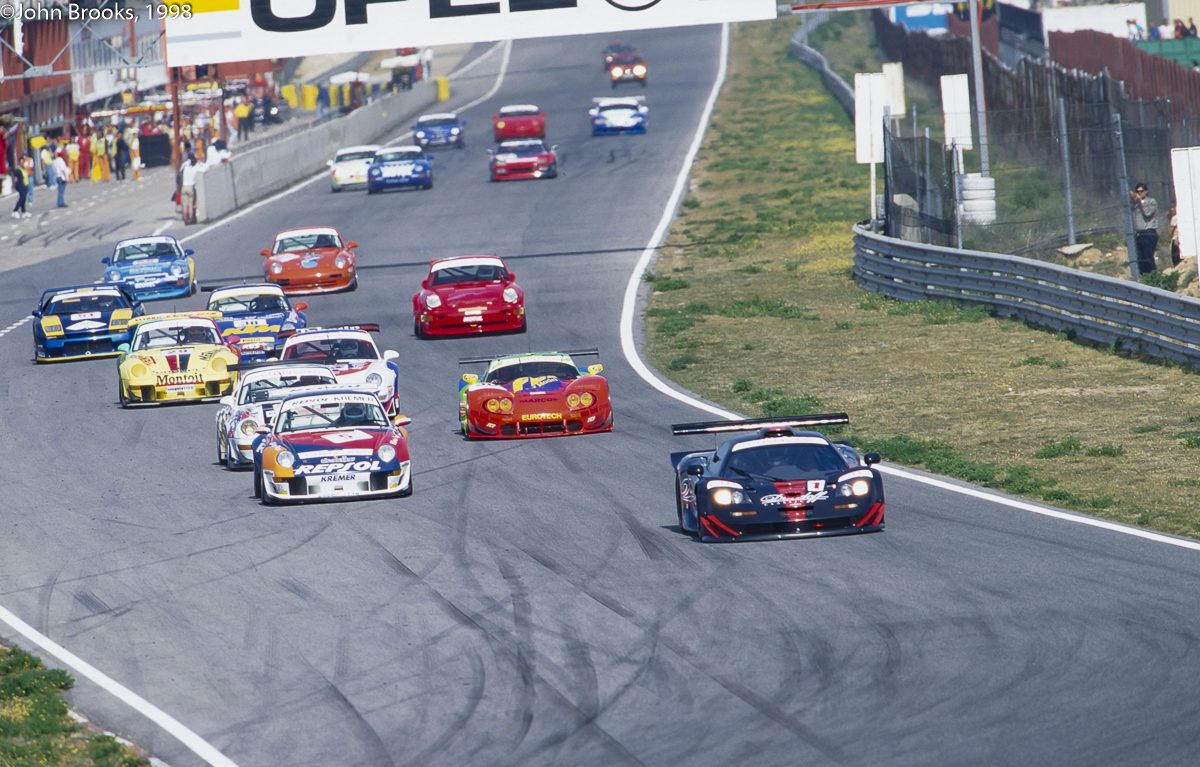
For over a quarter of a century Patrick Peter has been one of most successful promoters in motor sport, rivalling his former partner in crime at BPR, Stéphane Ratel.
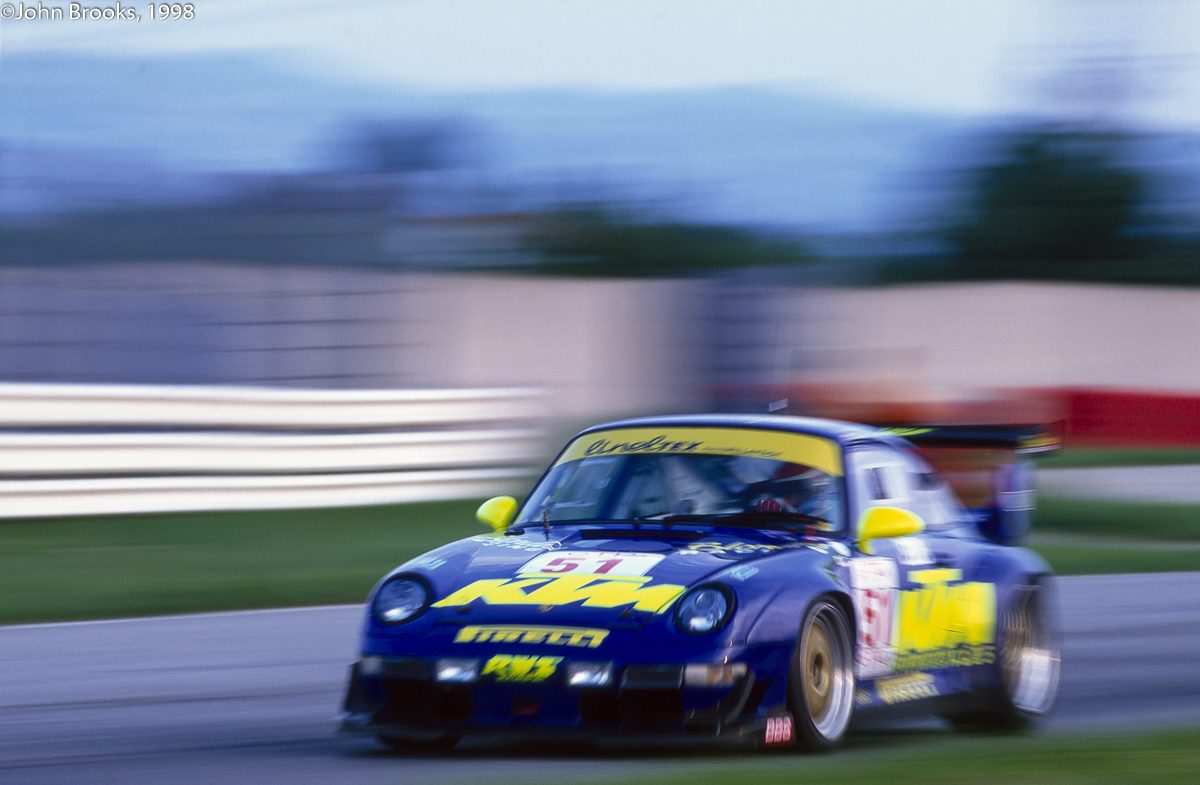
The Le Mans Classic, Tour Auto and Chantilly Arts & Elegance are all world class motoring events that Peter has created but even he had to admit defeat some 20 years ago when he attempted to get the GTR Euroseries off the ground.
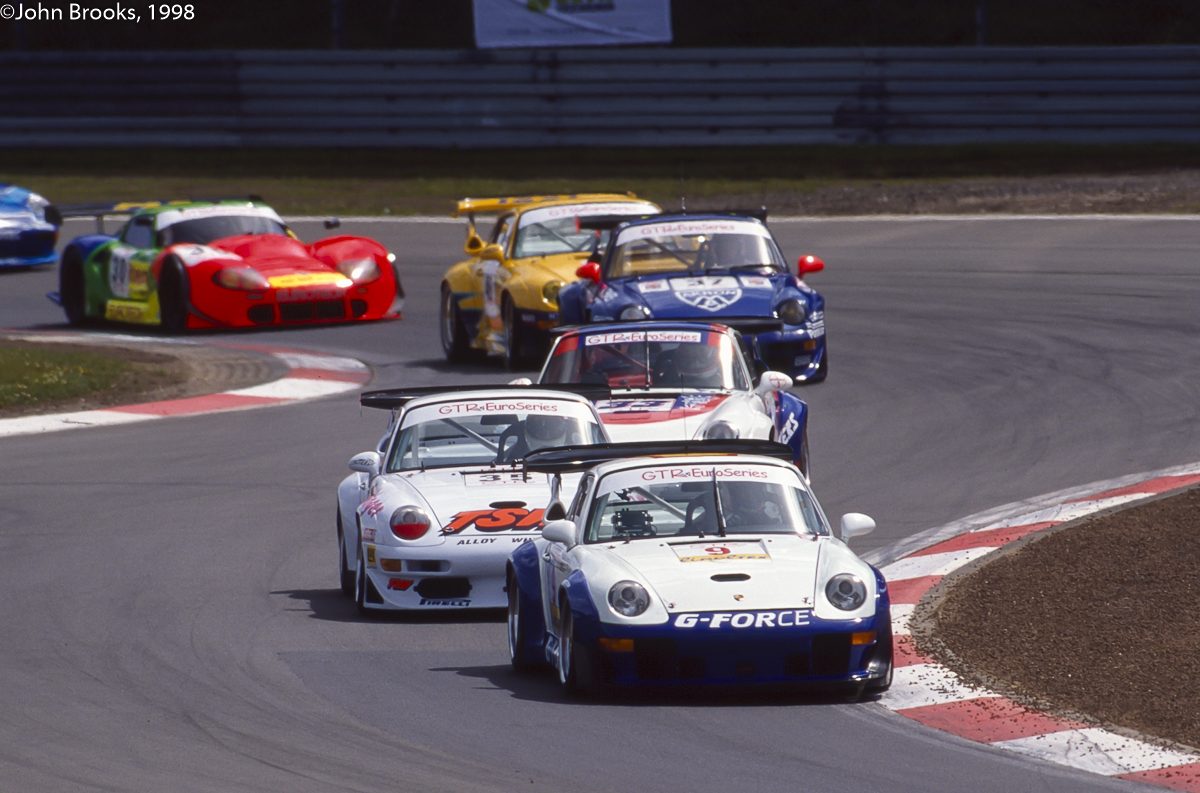
The wildly successful BPR-run Global Endurance Series for GTs splintered in late 1996 under pressure from the FIA aka Bernie and Max on the topic of TV rights. It also suffered from conflicts of opinion that the ruling trio had with each other on the future direction of their partnership, I tried to document that turbulence back at the time. http://www.doubledeclutch.com/?p=10162
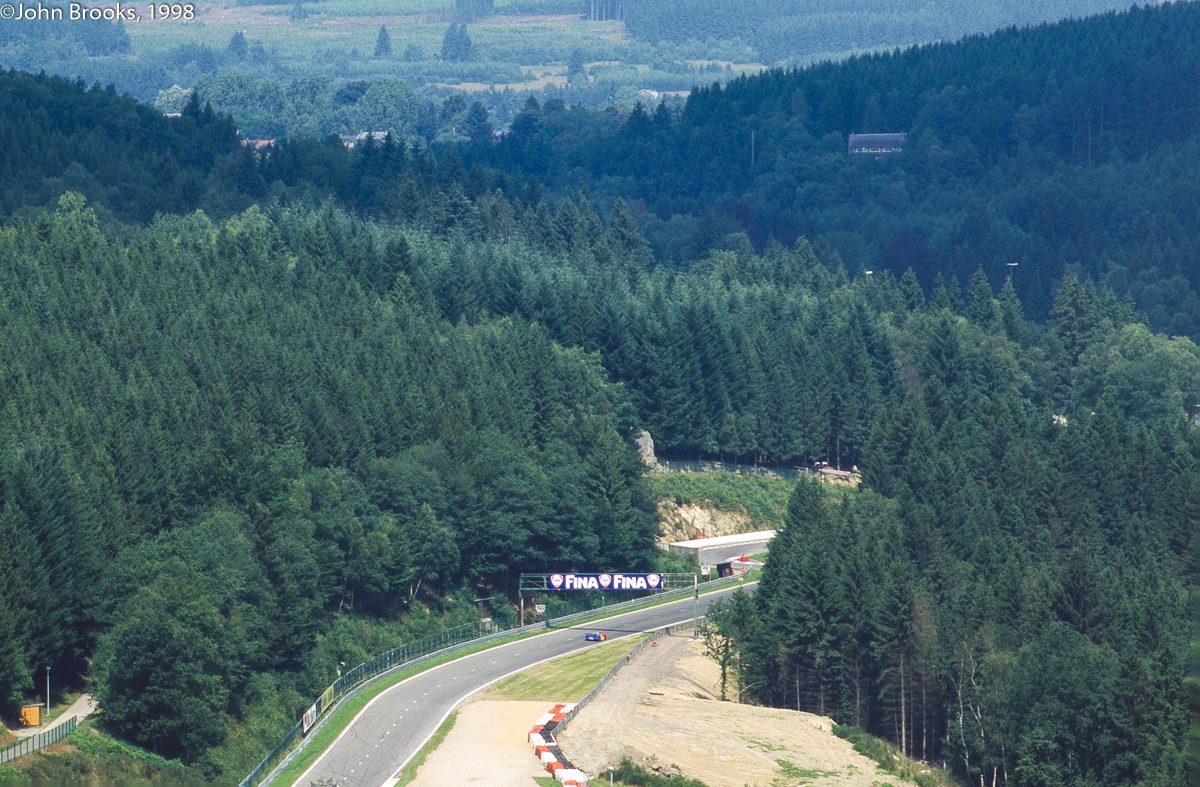
The net result in 1997 was the FIA GT Championship, a partnership between Stéphane Ratel and Bernie Ecclestone. It was wildly successful in its first season but under the surface it had already laid the ingredients for its own destruction by allowing Mercedes-Benz to drive a coach and horses through the homologation protocols as understood by the other manufacturers. The GT1 class of the Championship collapsed at the end of 1998. The FIA GT Championship only just survived to run the GT2 cars again for the following season without the factory teams, Chrysler Viper excepted. It was a lesson that Stéphane never forgot, keep the manufacturers under control, support the gentlemen drivers.
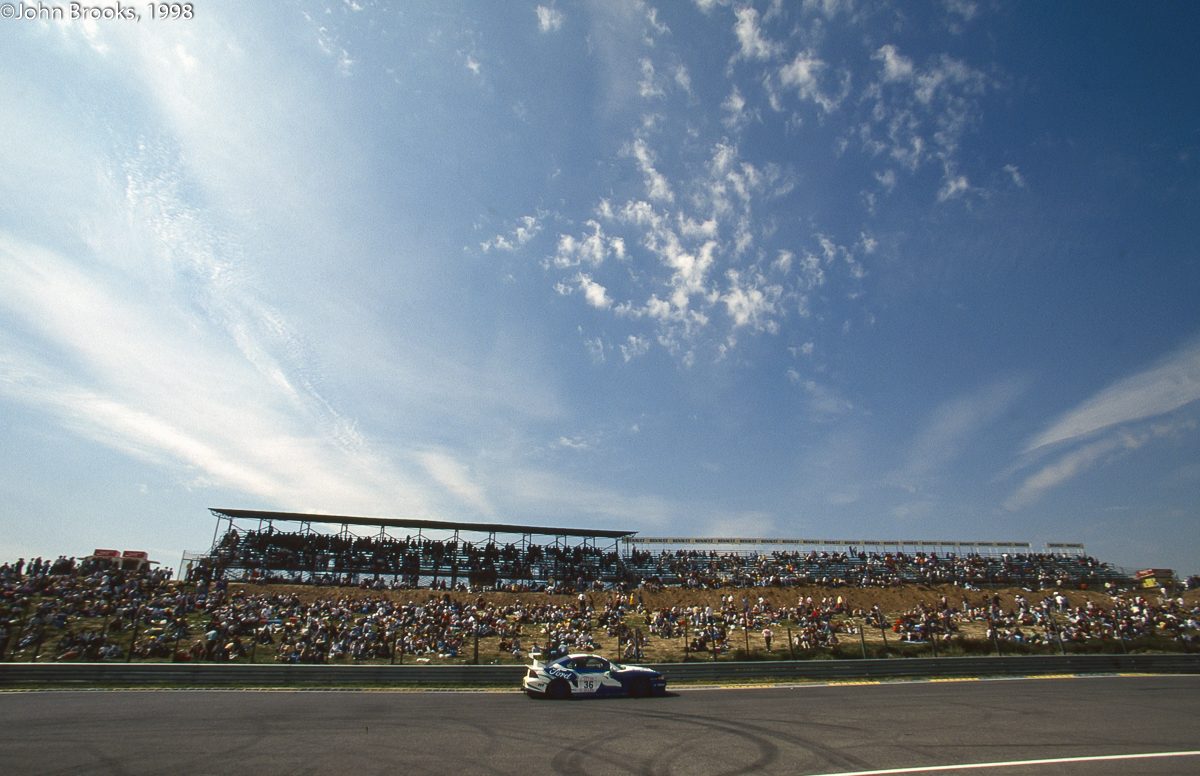
Patrick Peter launched the French GT Series in 1997 and that was taken over the following year by the Stéphane Ratel Organisation. So Peter then attempted to promote a European GT contest in the spirit and style of the early BPR days, the GTR Euroseries. In the end five rounds were held; Jarama, Paul Ricard, Misano, Nürburgring and Spa. The grids were considerably smaller than expected and Peter admitted defeat after the Belgian event held in late July.
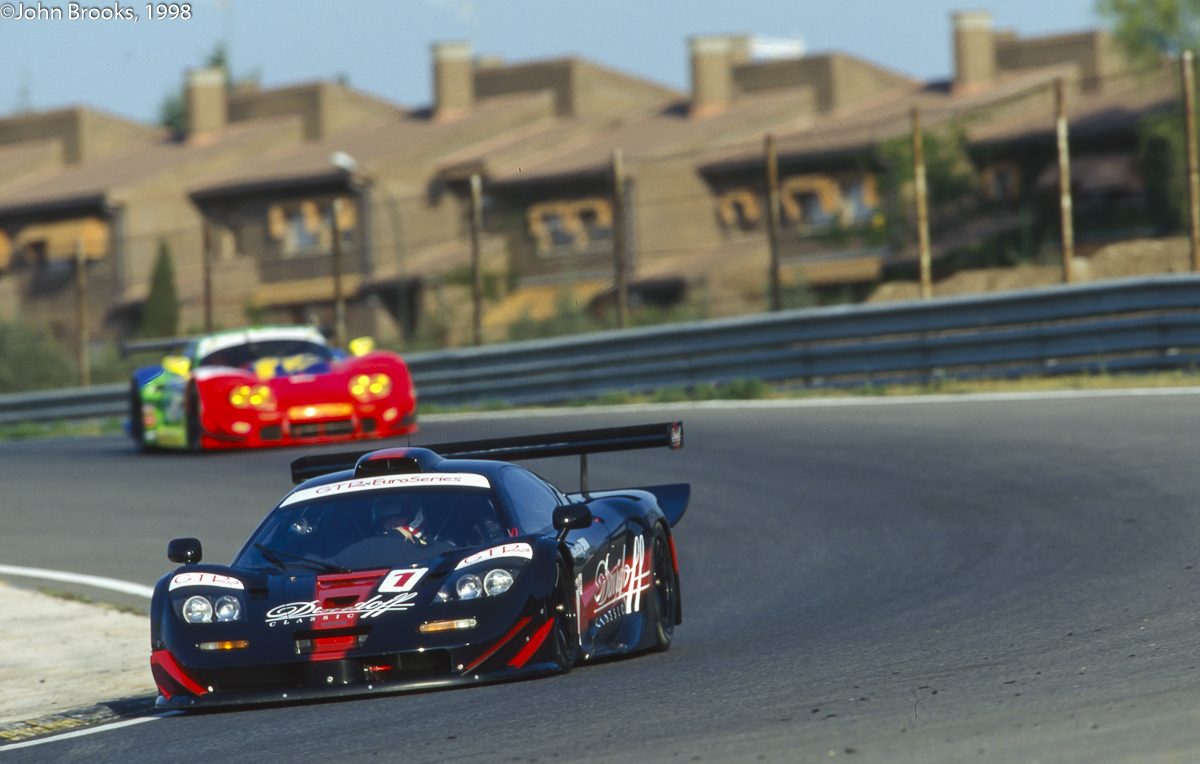
There were quite a number of positive aspects to the series, the conviviality of the paddock was in contrast to the “korporate kulture” that AMG-Mercedes in particular brought to the FIA GT Championship, I know which one I preferred. The GTR grids were largely a collection of Porsches of varying vintages and performance, GT2, Cup Cars etc. The first round in Spain was won by the McLaren F1 GTR of Thomas Bscher and Geoff Lees, it would prove to be the penultimate international victory for the F1 GTR.
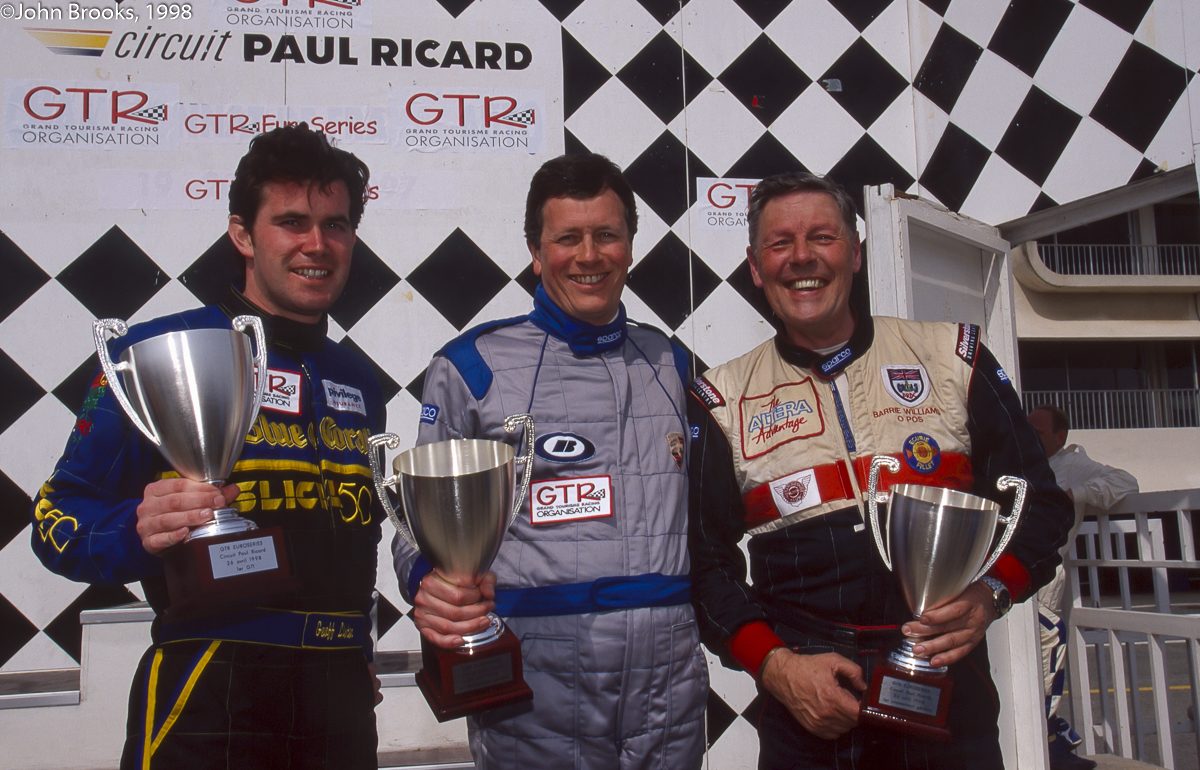
The following race held at Le Castellet would also be a landmark for one of those ascending the top step of the podium. This being the final international victory for the irrepressible Barrie ‘Whizzo’ Williams, one of the most popular figures in British motor sport for over half a century. He shared the win with Maxwell Beaverbrook and Geoff Lister in the former’s Porsche 911 GT2 EVO.
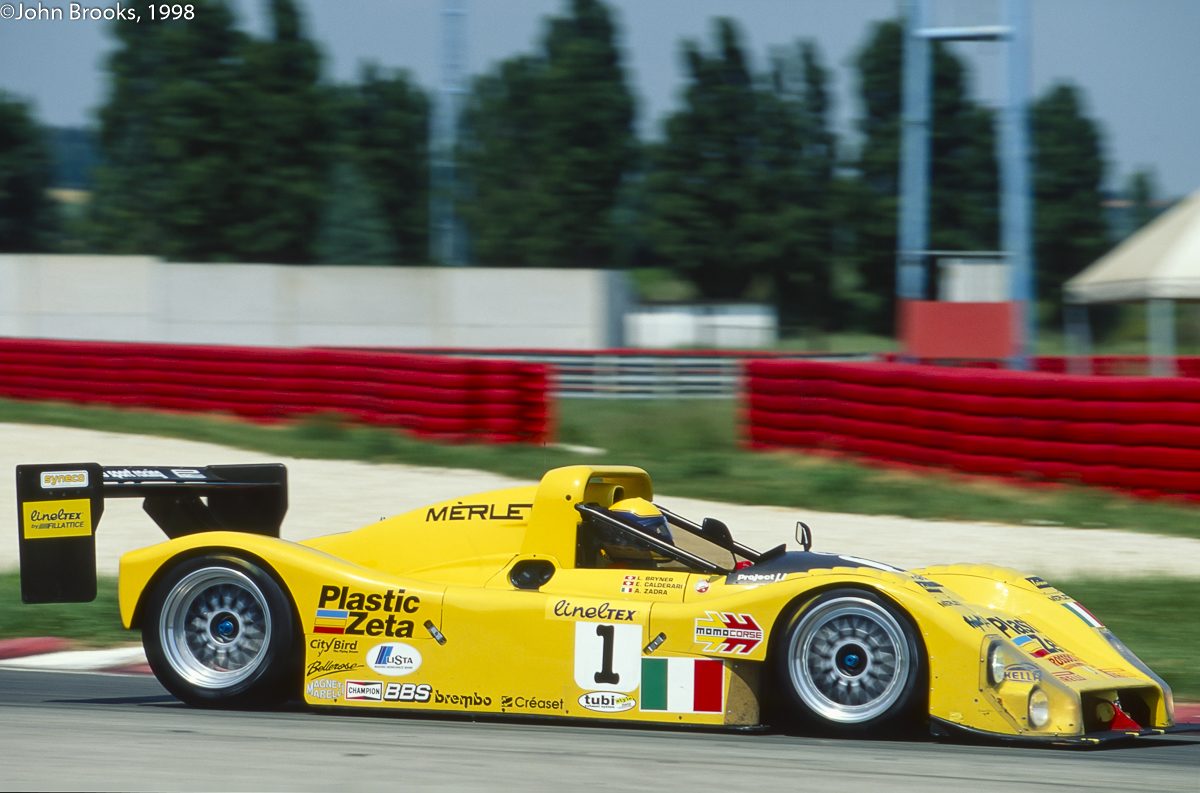
A proposed double header with John Mangoletsi’s ISRS to be run at Brno foundered when the Czech circuit’s pit and paddock facilities were not rebuilt in time. Mango’s Barmy Army went anyway, GTR Euroseries headed for the Adriatic and Misano. The contest would be shared with the anaemic Italian GT series and for reasons that were not clear then or now the Enzo Calderari/Lilian Bryner Ferrari 333 SP was also allowed to race….six seconds a lap faster than the GTs…..it looked and sounded great till the oil pump failed early in the proceedings.
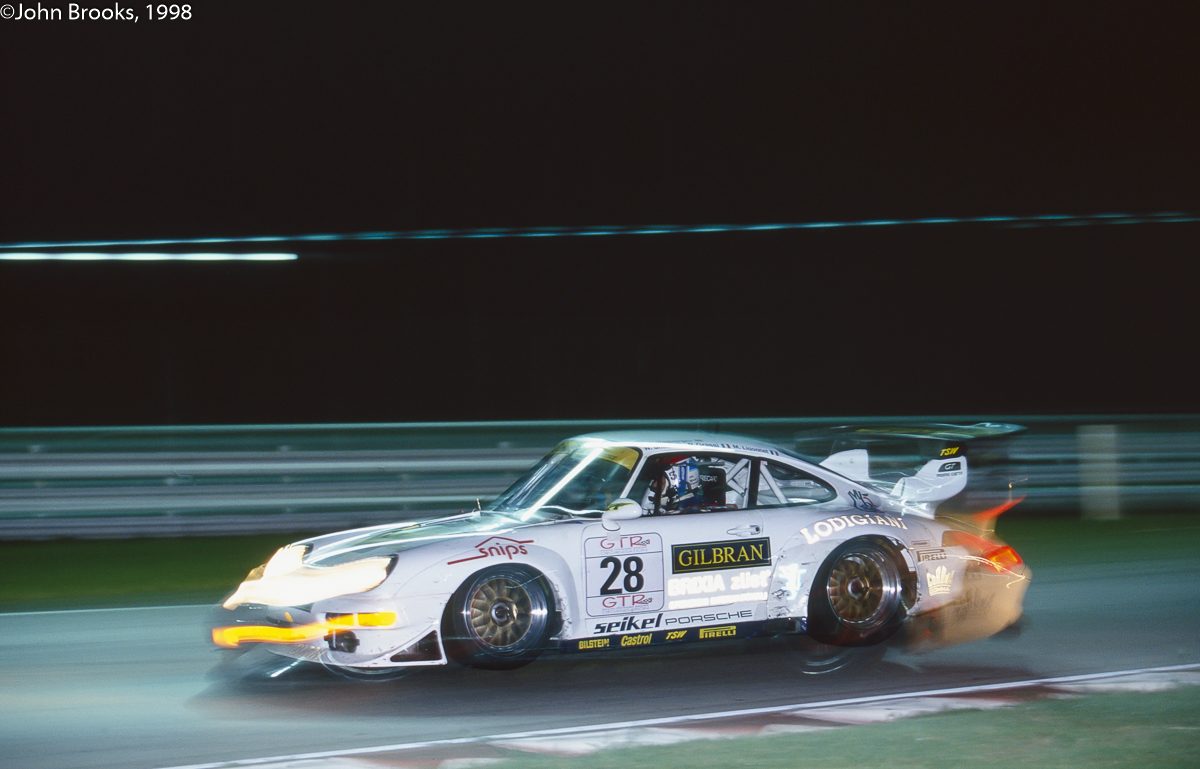
The contest had two elements, the four hours GTR event (Silver Cup) and the Italian GT round at six hours (Gold Cup). Only 15 GTs joined the yellow Ferrari on the grid for a 18.00 start, it would prove to be a long evening. On the positive front Nigel Smith (a good bloke) won the race with Michel Ligonnet (another good guy) and Ruggero Grassi (no idea) in the Seikel 911 GT2.
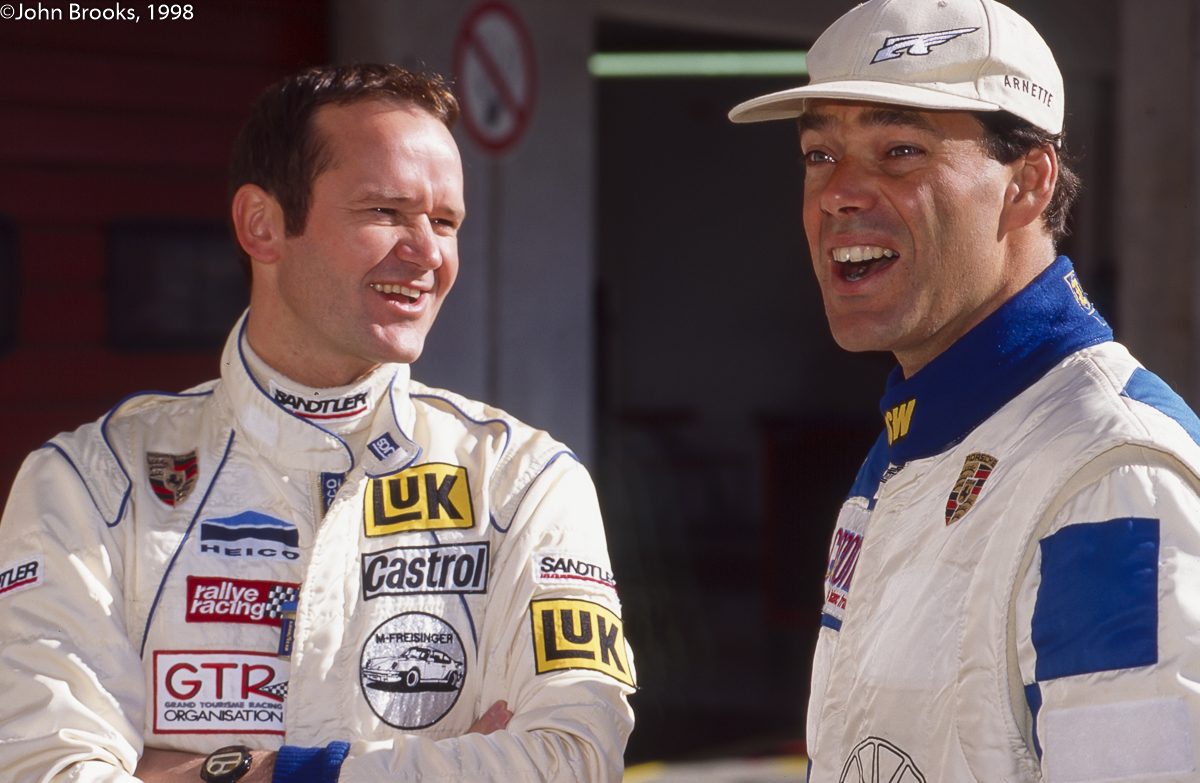
Next outing, at Nürburgring, was a low point for the season, only 10 entries showed up. The spoils going to the Freisinger 911 GT2 (what else?) of Wolfgang Kaufmann and Michel Ligonnet.
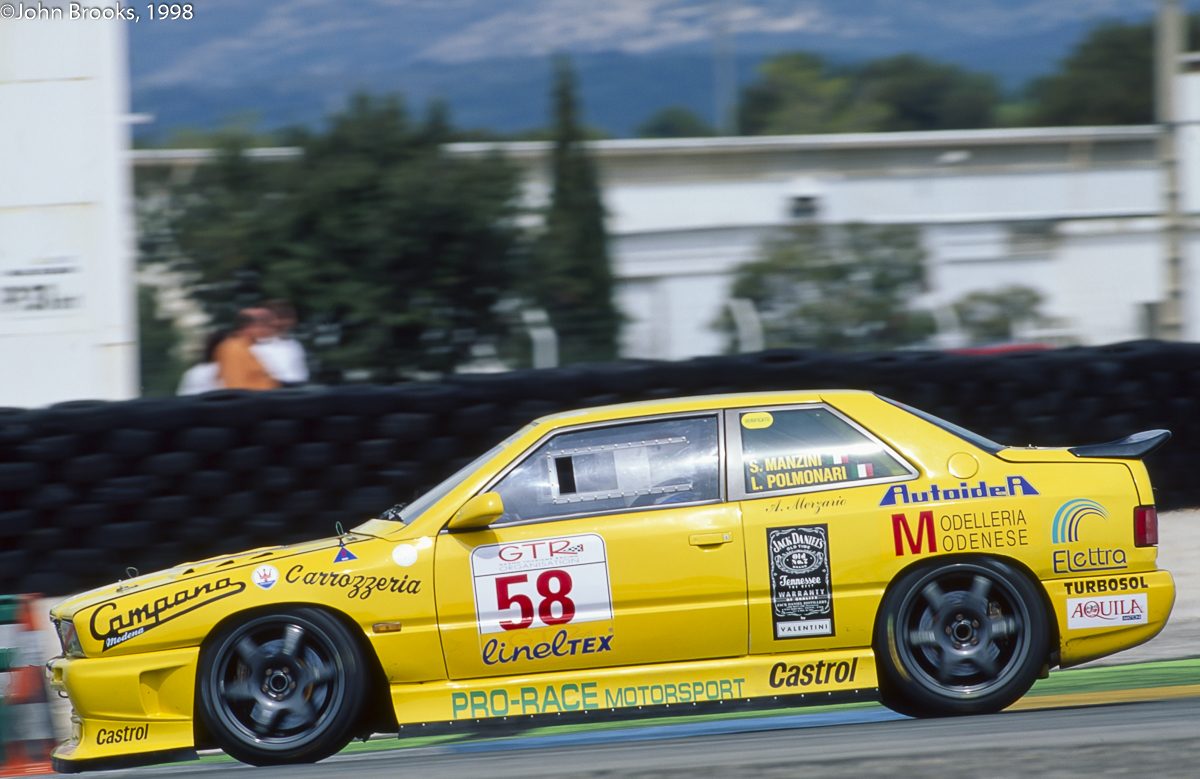
GTR Euroseries was not only contested by Porsches, other exotica ran such as the Maserati Ghibli with none other than Arturo Merzario behind the wheel with co-drivers Simone Manzini and Luca Polmonari . However Art was the one in the stetson puffing on a Marlboro, plus ça change………….
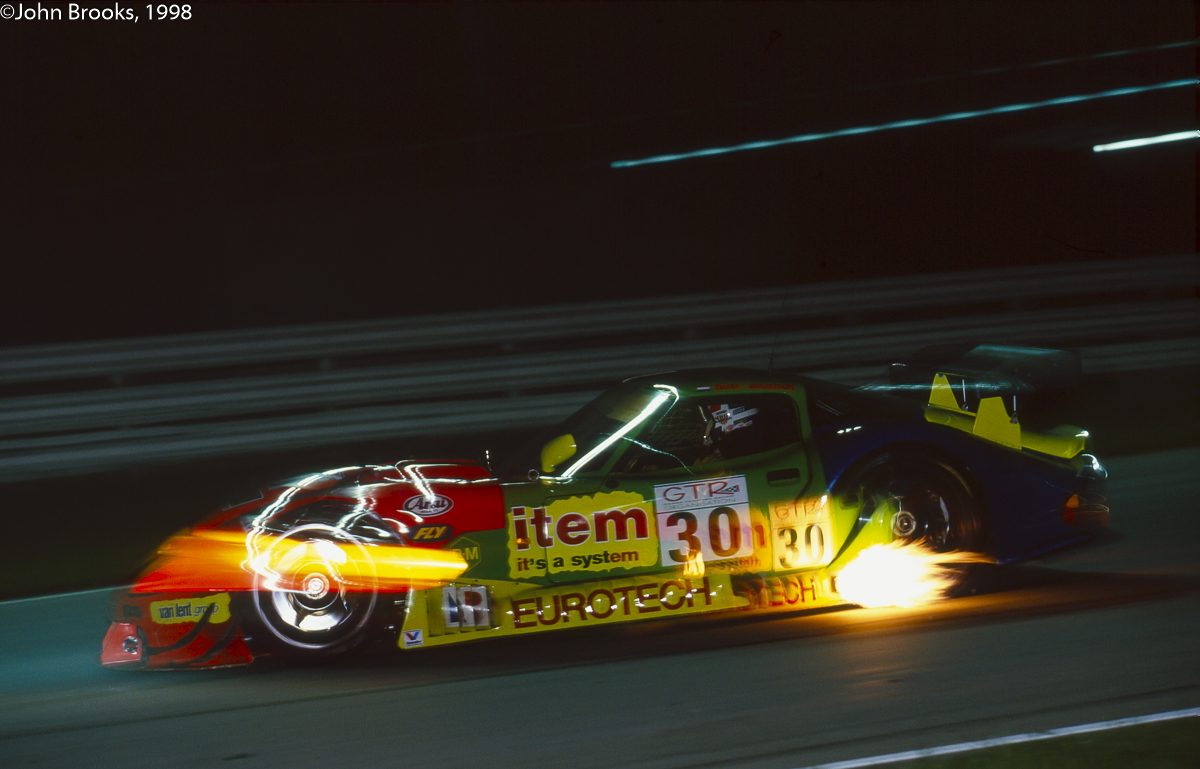
Adding colour and a good old V8 rumble to proceedings at all of the races was Cor Euser’s Marcos LM600 that he generally shared with Herman Buurman.
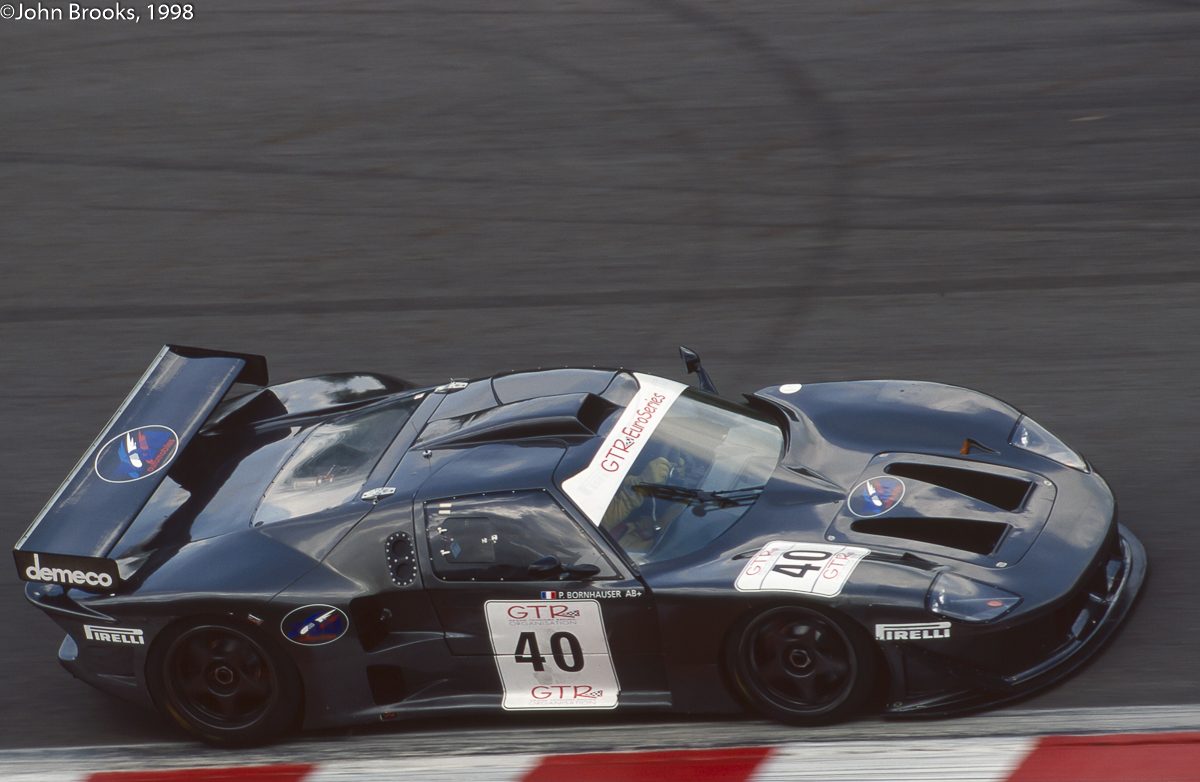
At the next round, held at Francorchamps as a support race to the 25 hour VW Fun Cup (!), the Ford GT40 impostor aka the VBM 4000 GTC made a welcome appearance. The race was won by the same pair that had triumphed in Germany, which made it three wins out of five for Ligonnet. Perhaps the indignity of ceding numero uno status to dozens of imitation Beetles was the final straw but round five at was the end of the road for the GTR Euroseries. Why had this concept not worked as expected?
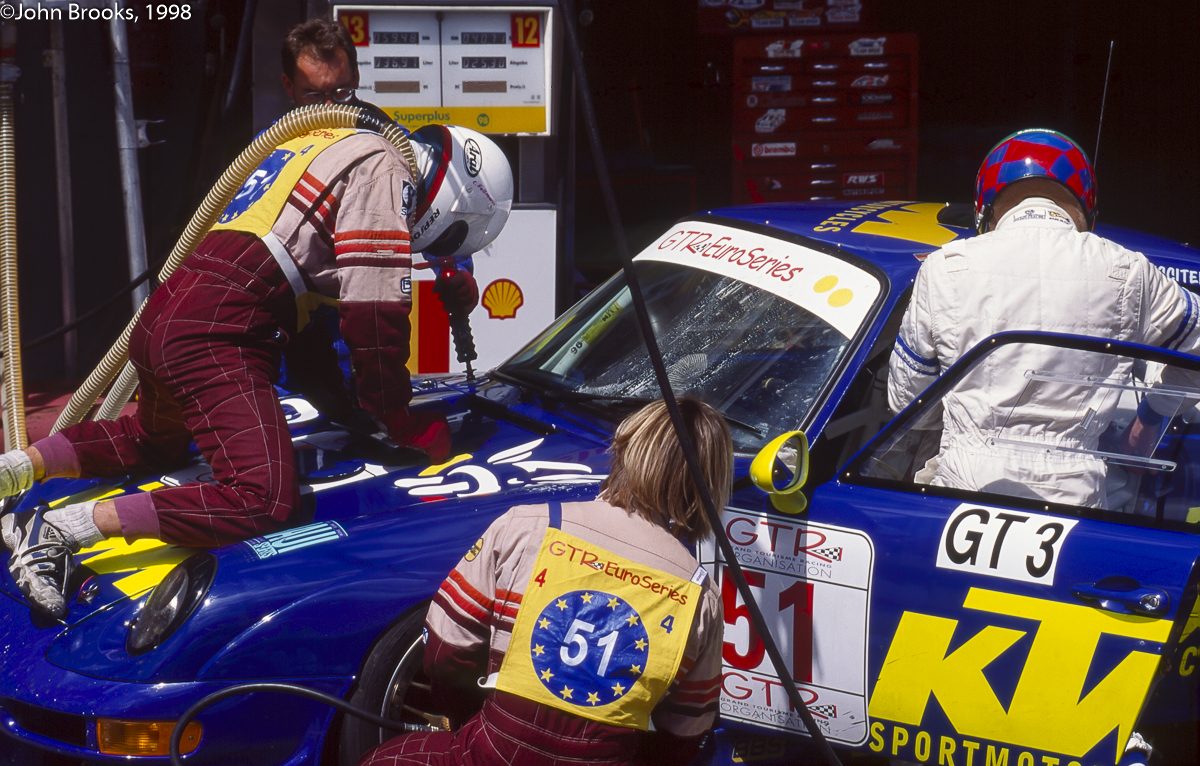
As with most enterprises timing is all important and 1998 was not the year to launch such a series, however appealing it might be to the gentlemen drivers seeking sanctuary from getting knocked around by the GT1 factory-pro brigade in the FIA GT. In ’94 and ’95 BPR rode the crest of a wave, the re-birth of GT Racing, after the destruction of Group C and the impracticalities of Group B regulations. There was a genuine enthusiasm for the competition which was underpinned by the realisation that how the game was played mattered as much as the result. Friday night dinners at the circuits for competitors and media reinforced this camaraderie. Barth, Peter and Ratel were pioneers in many respects, for example taking their merry band to Zhuhai in late 1994 for the first ever motor race in The People’s Republic of China. The fact was that there was no alternative to BPR on this side of the Atlantic, outside of the Le Mans 24 Hours, if endurance motor sport tickled your fancy.
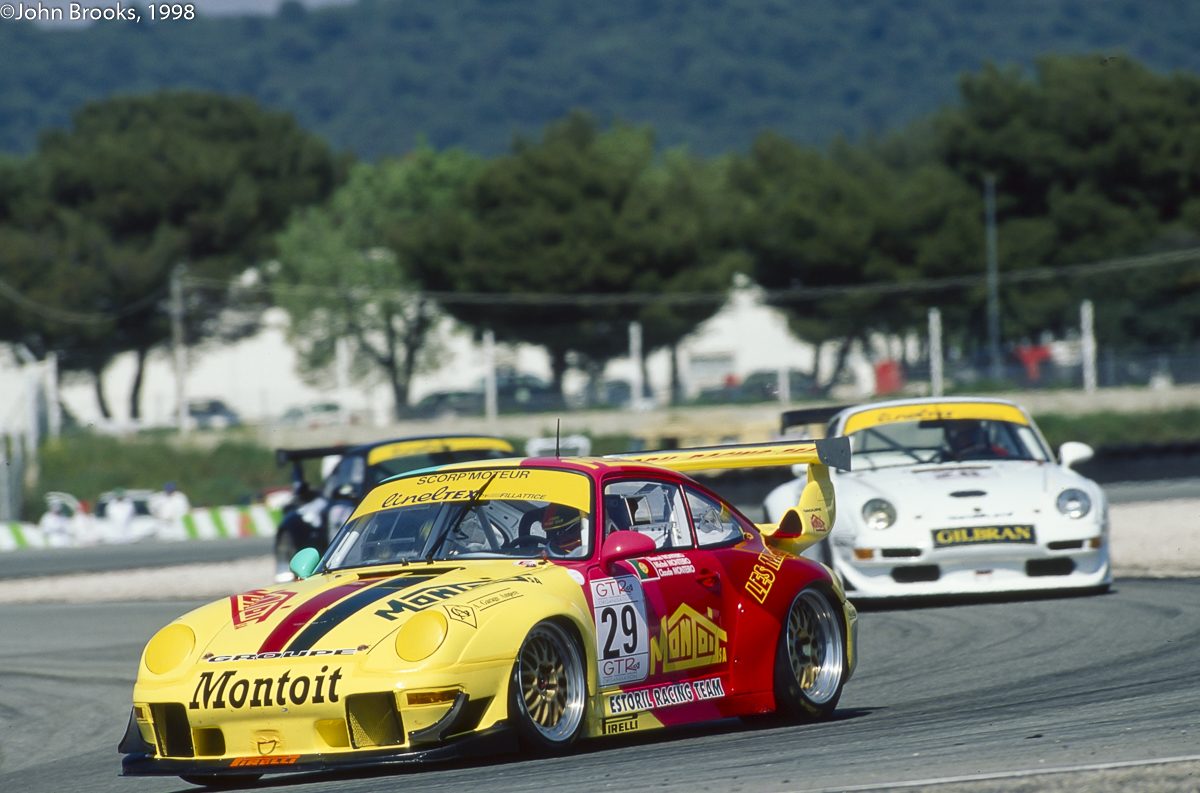
Four years on and the landscape in endurance sportscar racing in Europe had changed out of all recognition. For their second season FIA GT Championship retained most of its supporters in the GT2 class from 1997. Those like Ray Bellm, Rocky Agusta, Alfonso de Orléans-Borbón, and the aforementioned husband and wife team of Enzo Calderari and Lilian Bryner, who had chosen to jump ship headed to prototype racing in the ISRS rather than buy a dated GT2 Porsche.
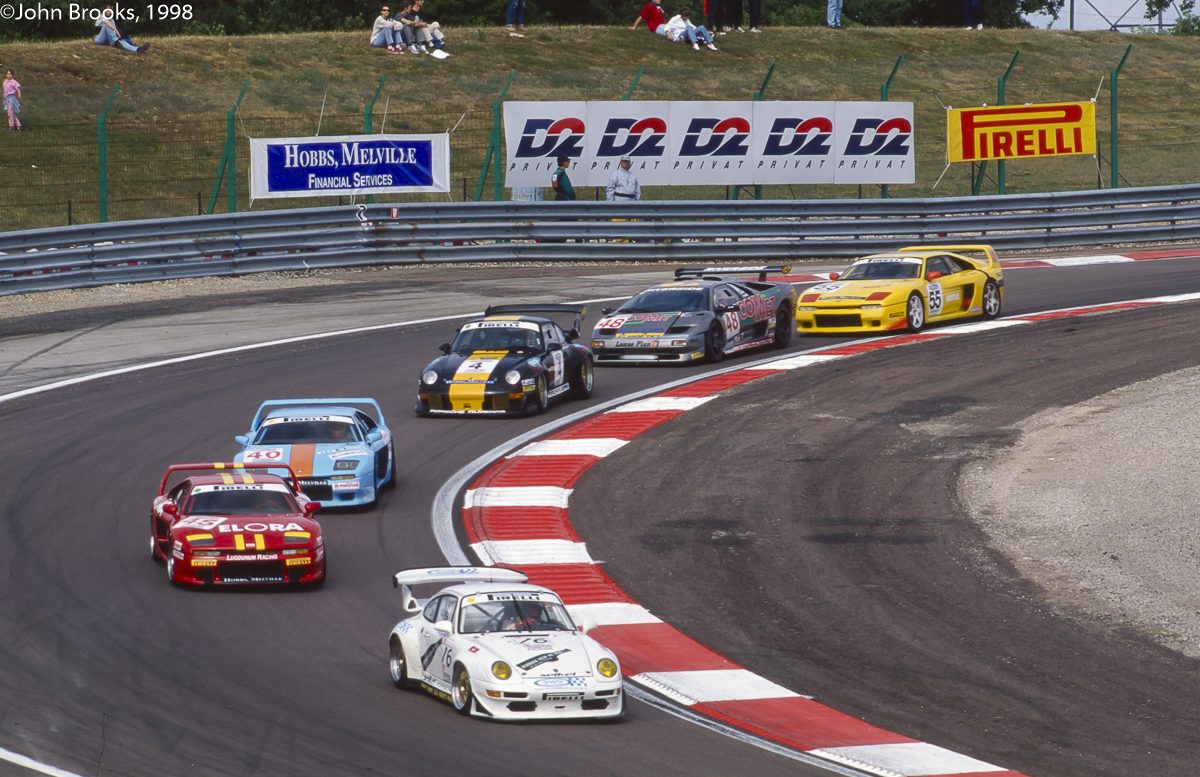
The new French GT series that Peter had created had up to 40 cars on the grid, a fair number of which he might have expected to follow him around Europe. Instead the French teams enjoyed the comforts of racing at home, here supporting the Dijon round of the FIA GT Championship.
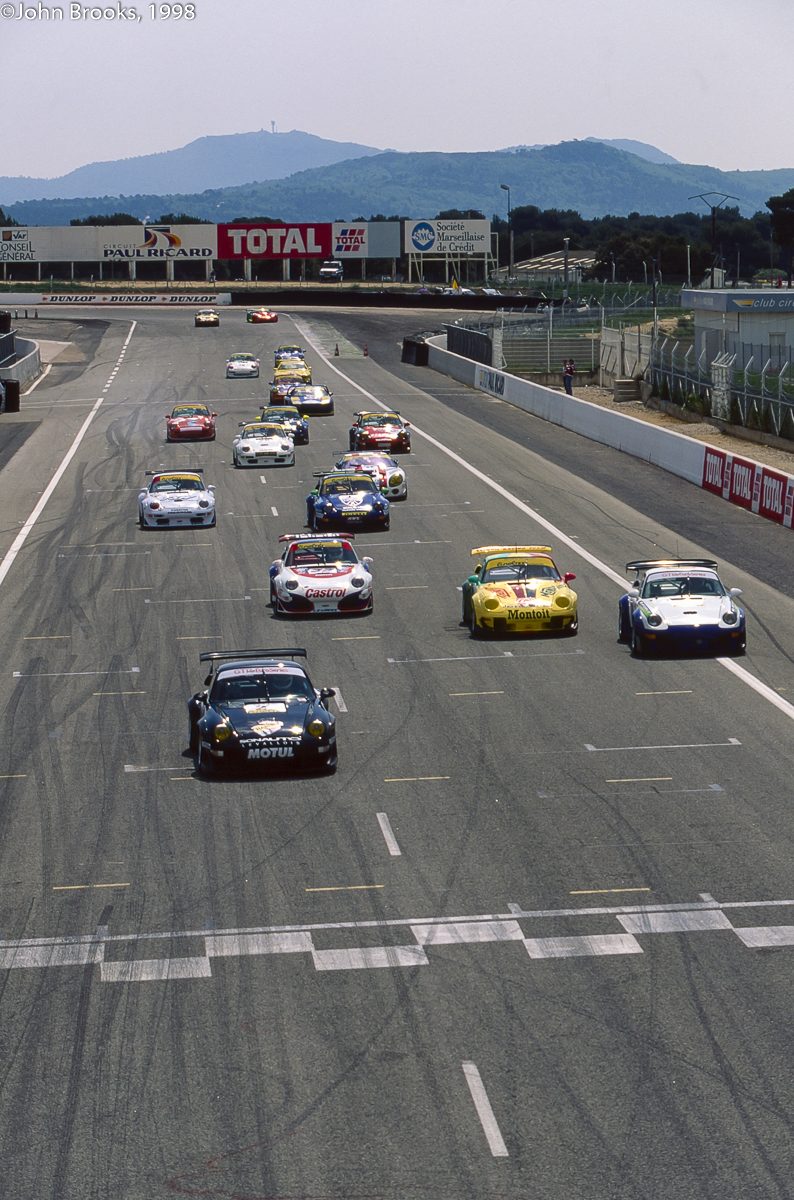
Porsche and Ferrari were also a problem. Neither had a new GT racer available. At that point in time that would be a serious obstacle to the success of a GT race series. Porsche Motorsport were still chasing the head of the field in their 911 GT1 98 and their plan was to build a prototype to continue their astonishing run of successes at La Sarthe. Wendelin Wiedeking had different ideas and as CEO the boss always has the last say. He spent the money on developing the Cayenne, highly profitable but……. let’s leave it at that. Porsche would build the wildly successful 911 GT3 R, based on the 996 model, but it would not be until the 2000 season that 64 examples would be sold.
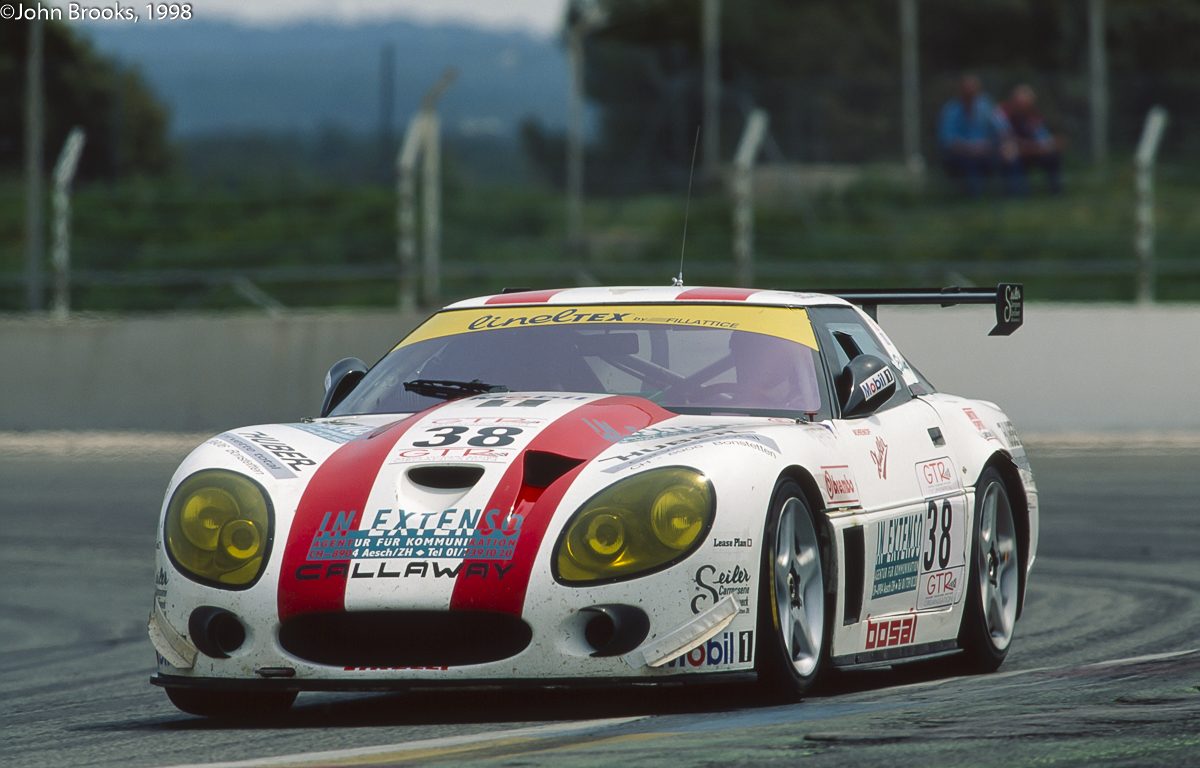
Ferrari only had eyes for Formula One at the turn of the century and had yet to realise that a handy profit could be accrued by getting Michelotto to develop and build Ferrari GTs, that programme would also begin in 2000 with the 360 Modena. For many of those who can afford such a hobby only driving a Ferrari will do, Maranello Madness you might say…….
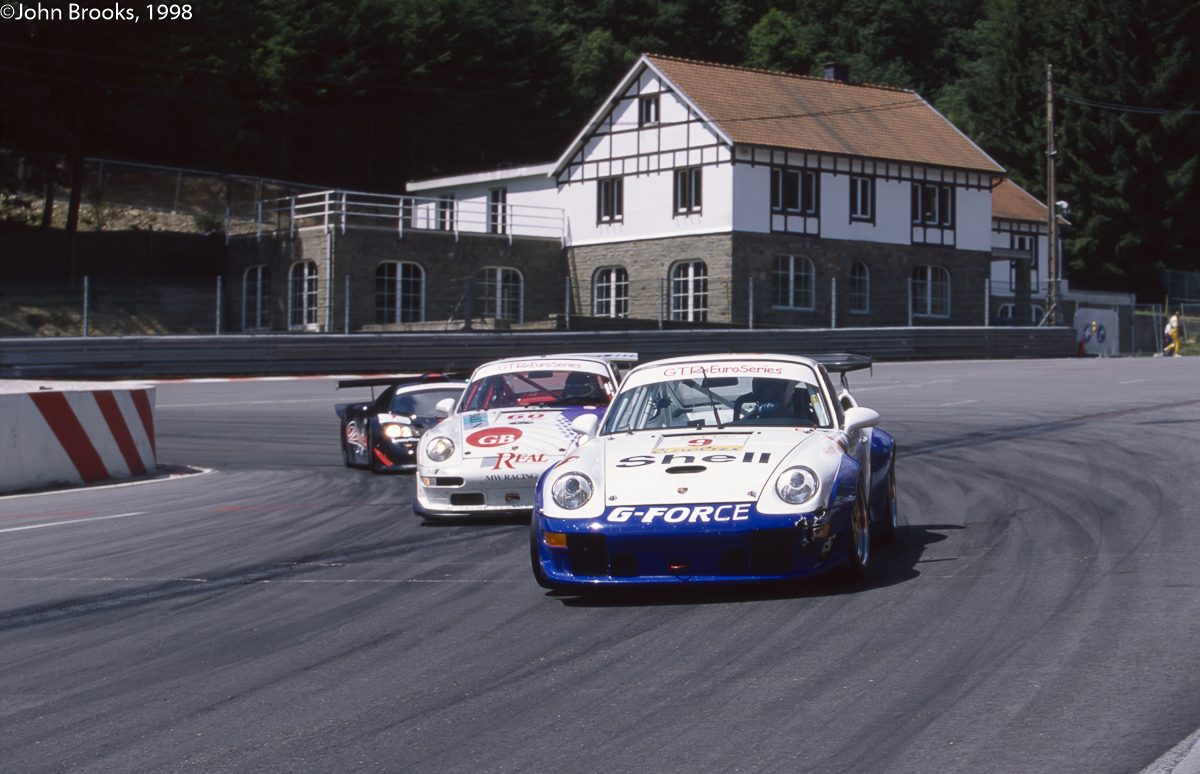
The basic soundness of the GTR Euroseries concept has been validated later by the success of the International GT Open. Devised by ex- endurance racer Jesús Pareja it took advantage of the plentiful supply of GT2 and, later, GT3 cars to ensure a healthy grid. The timing was right.
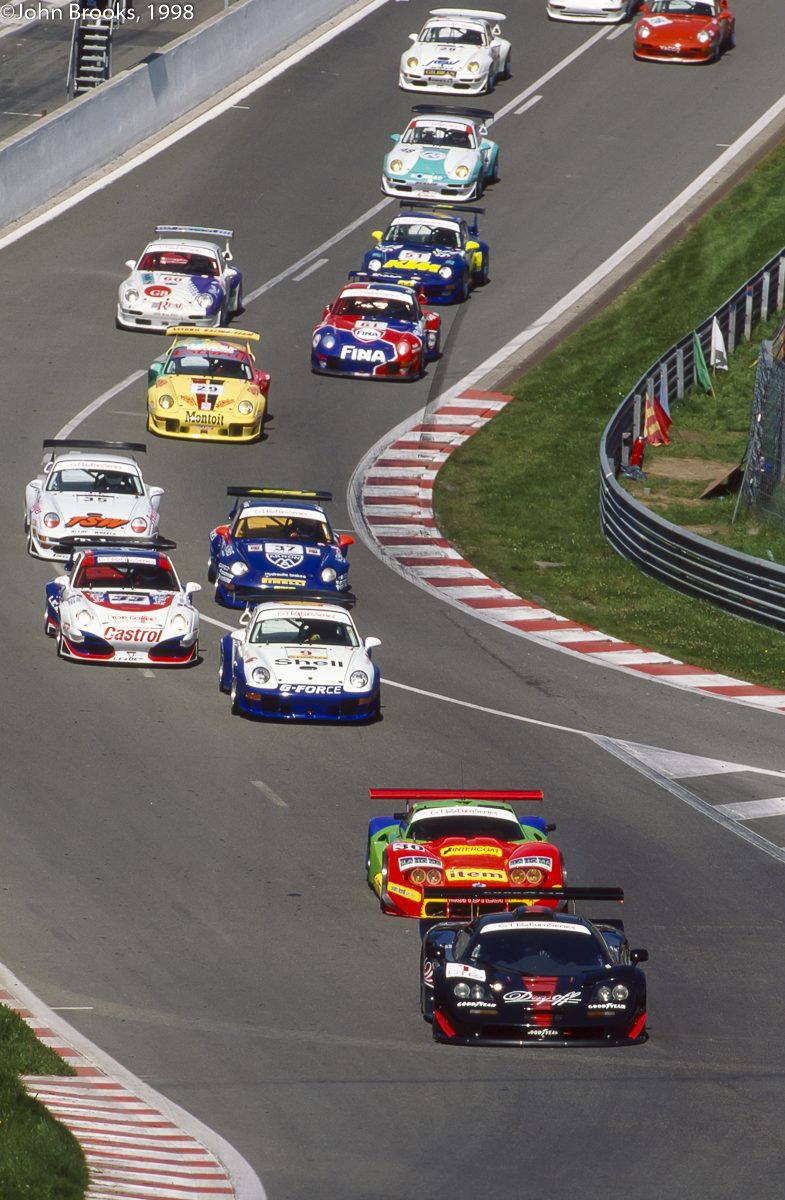
One benefit that came as a result of the end of GTR adventure was it gave Patrick Peter the time for the eventual creation of the Le Mans Classic, without any doubt one of the greatest celebrations of motoring competition and car culture on the planet. Clouds and Silver Linings come to mind………
Finally may I wish the loyal readers of this site a happy and healthy 2019.
John Brooks, December 2018

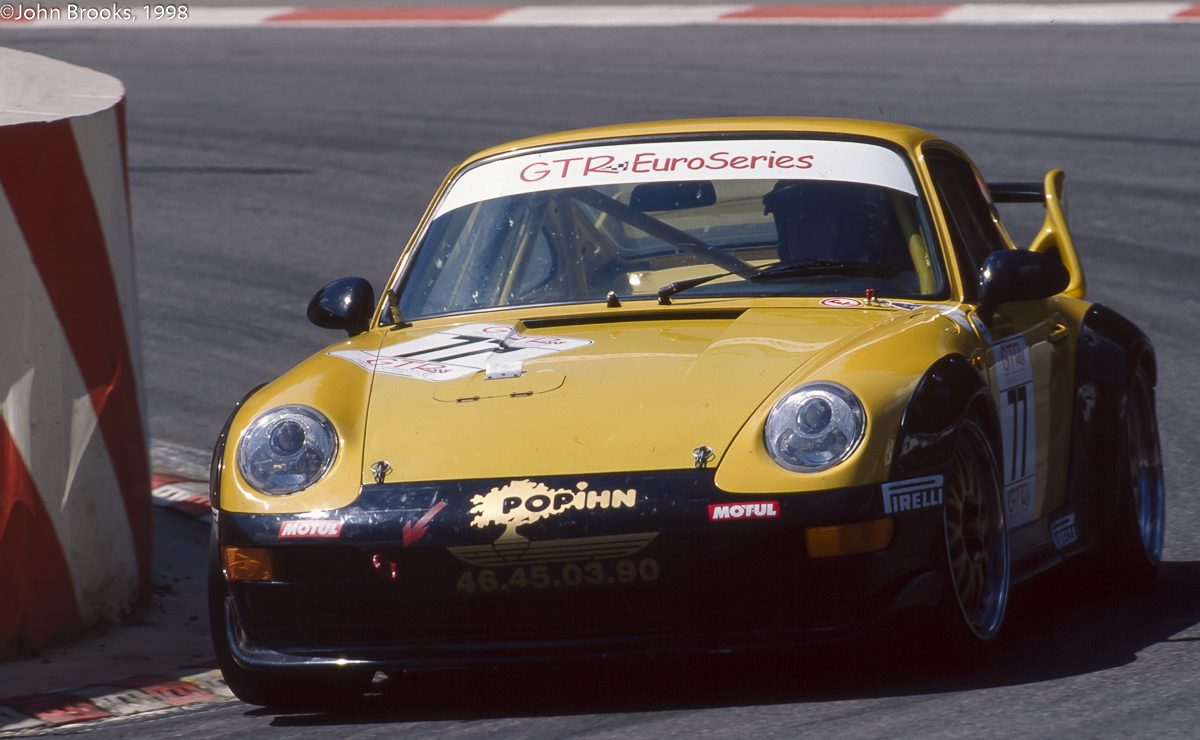
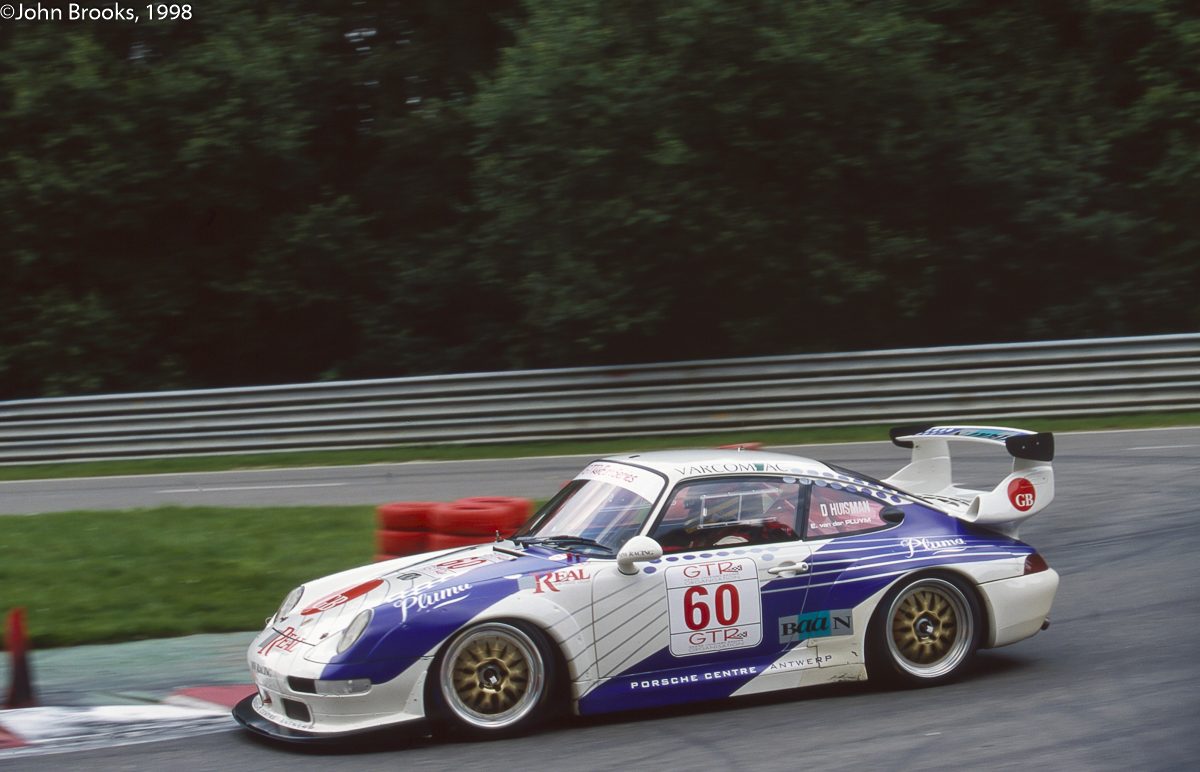
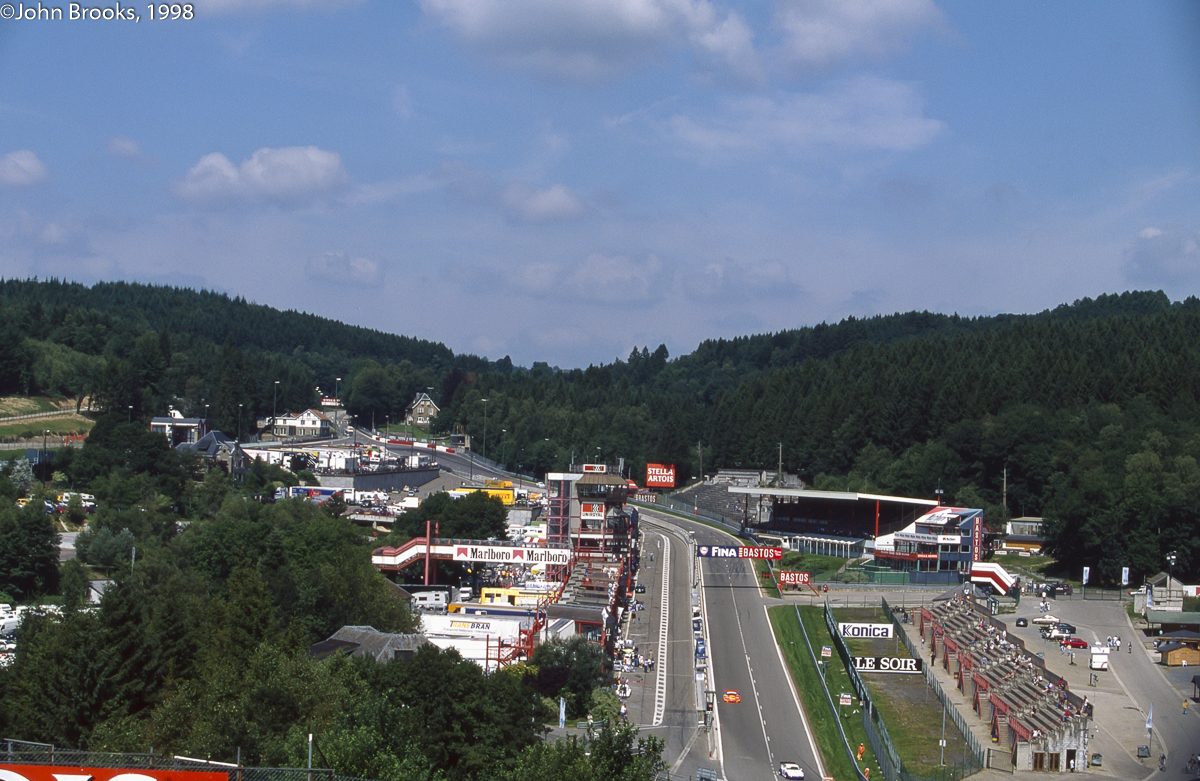
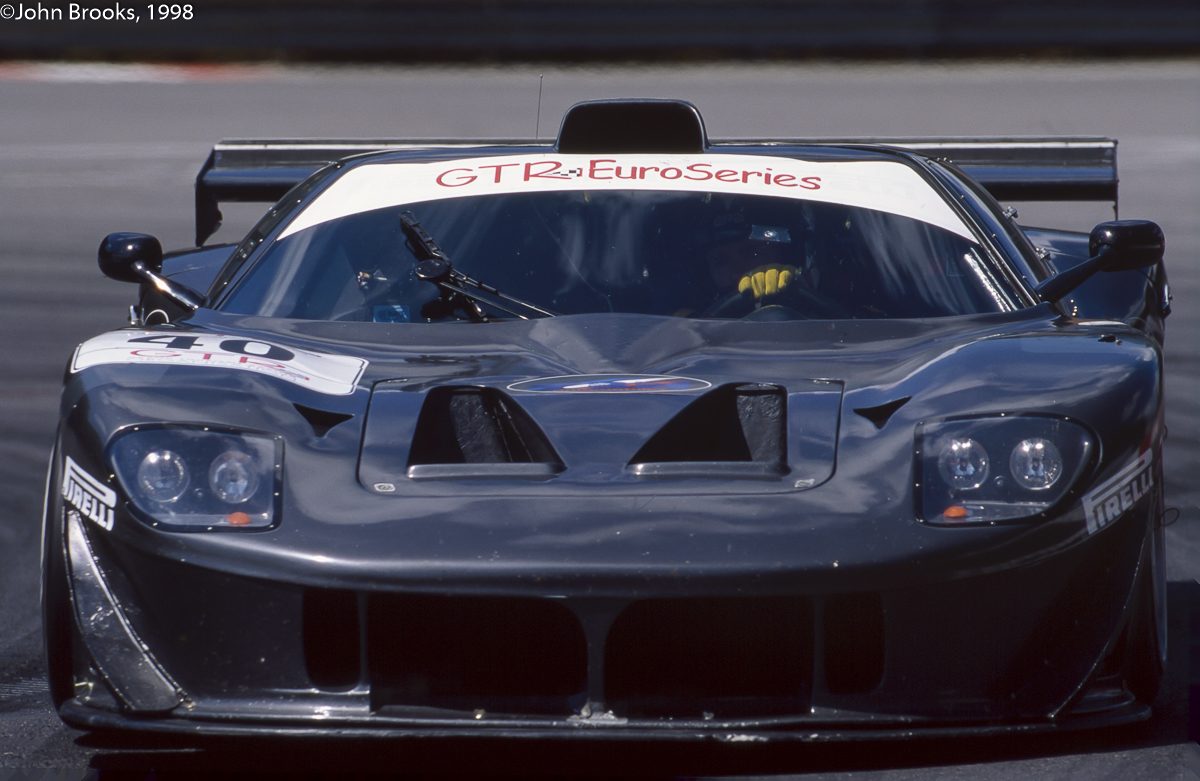
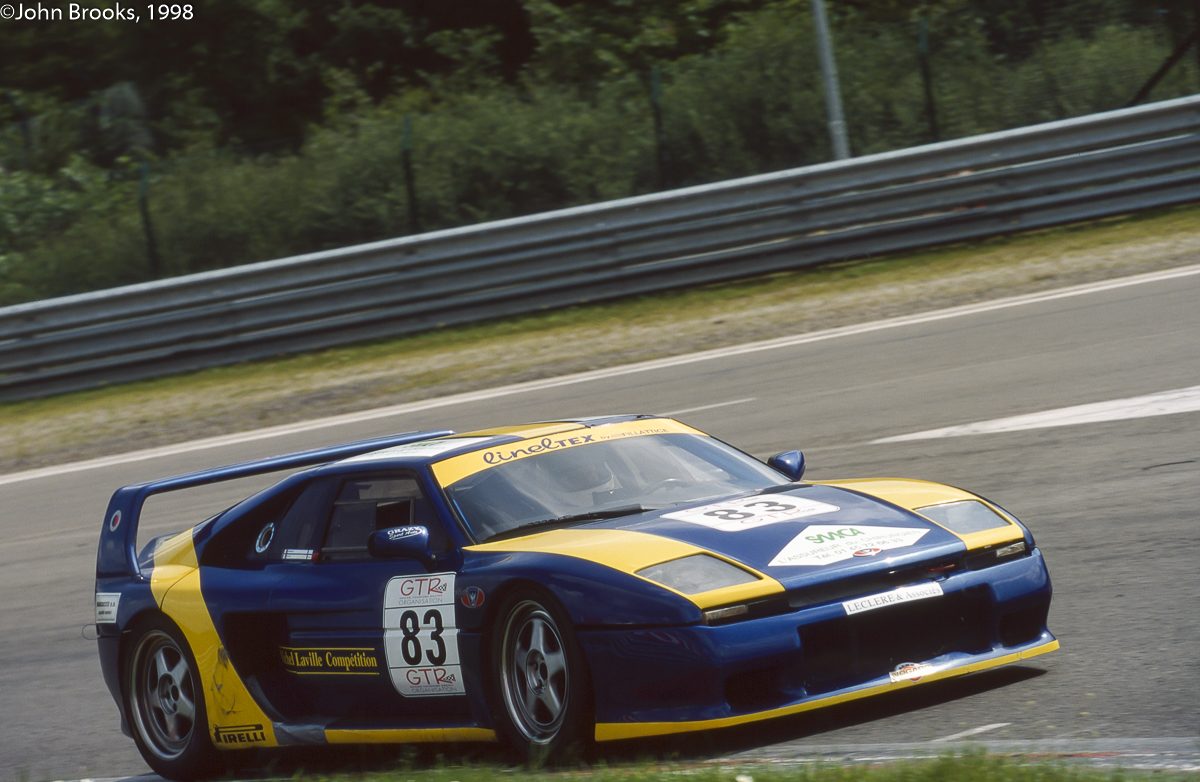
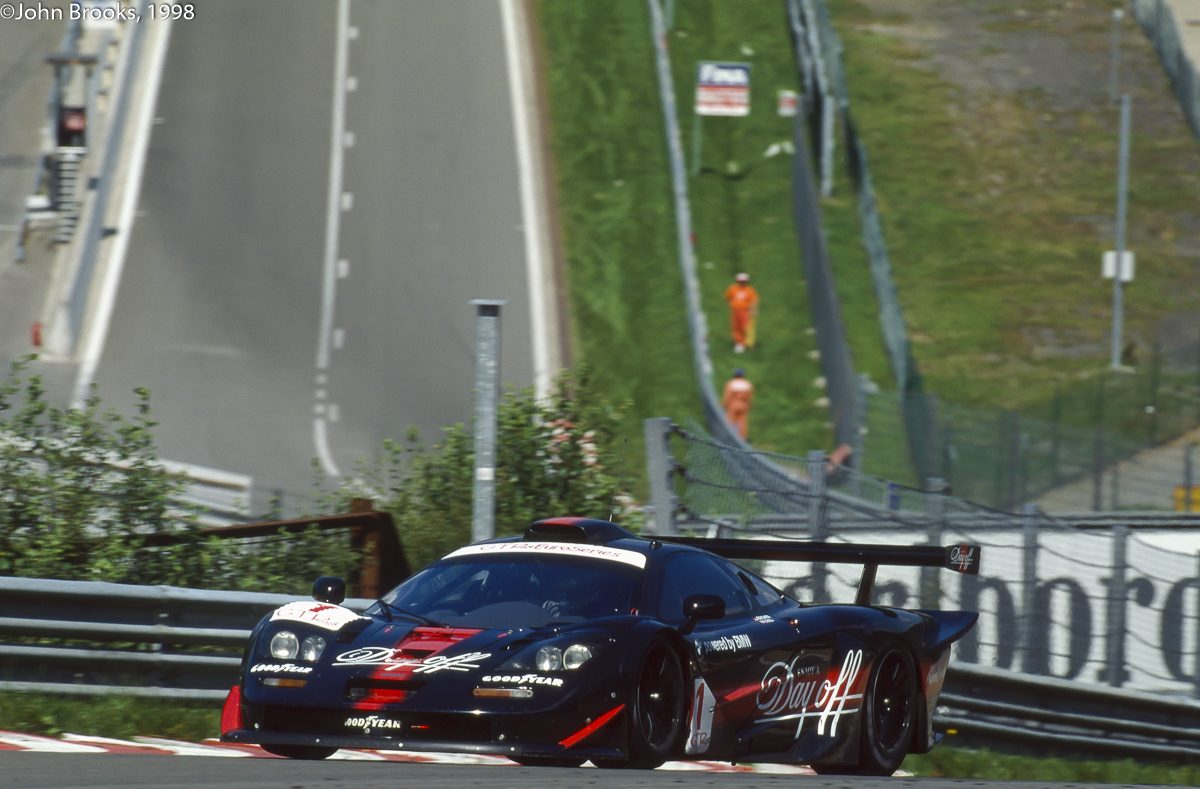
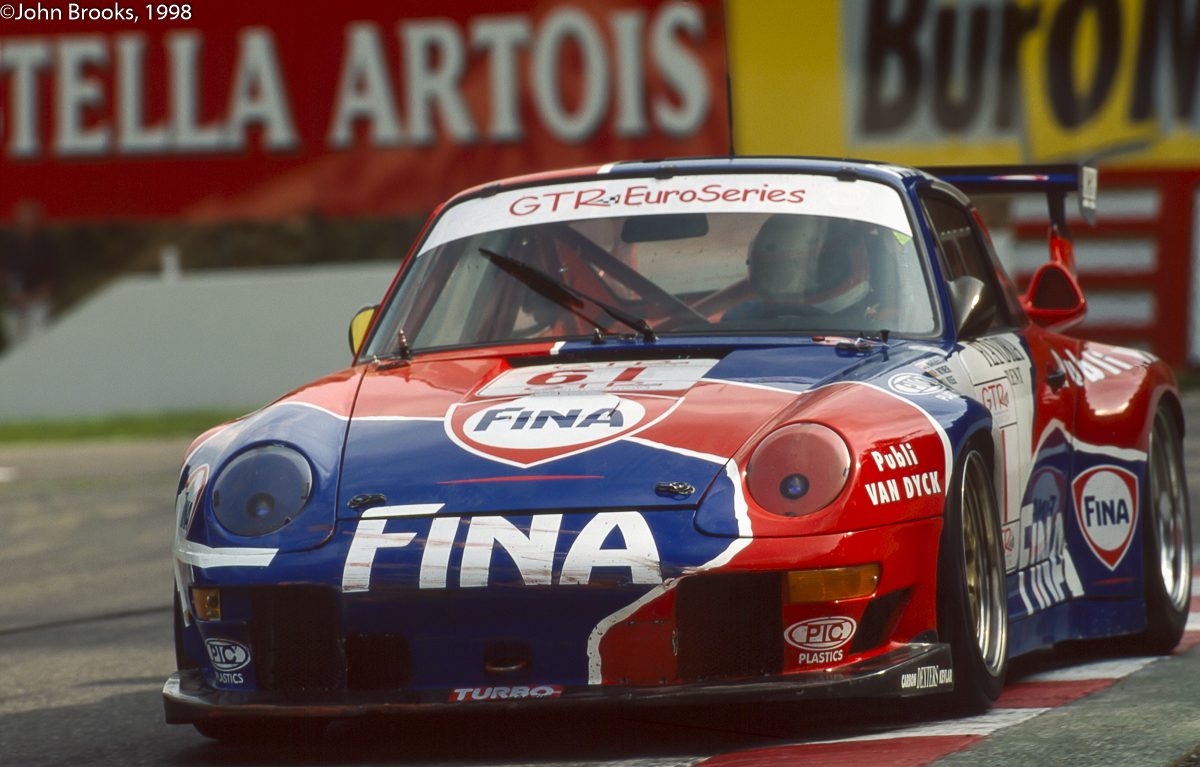
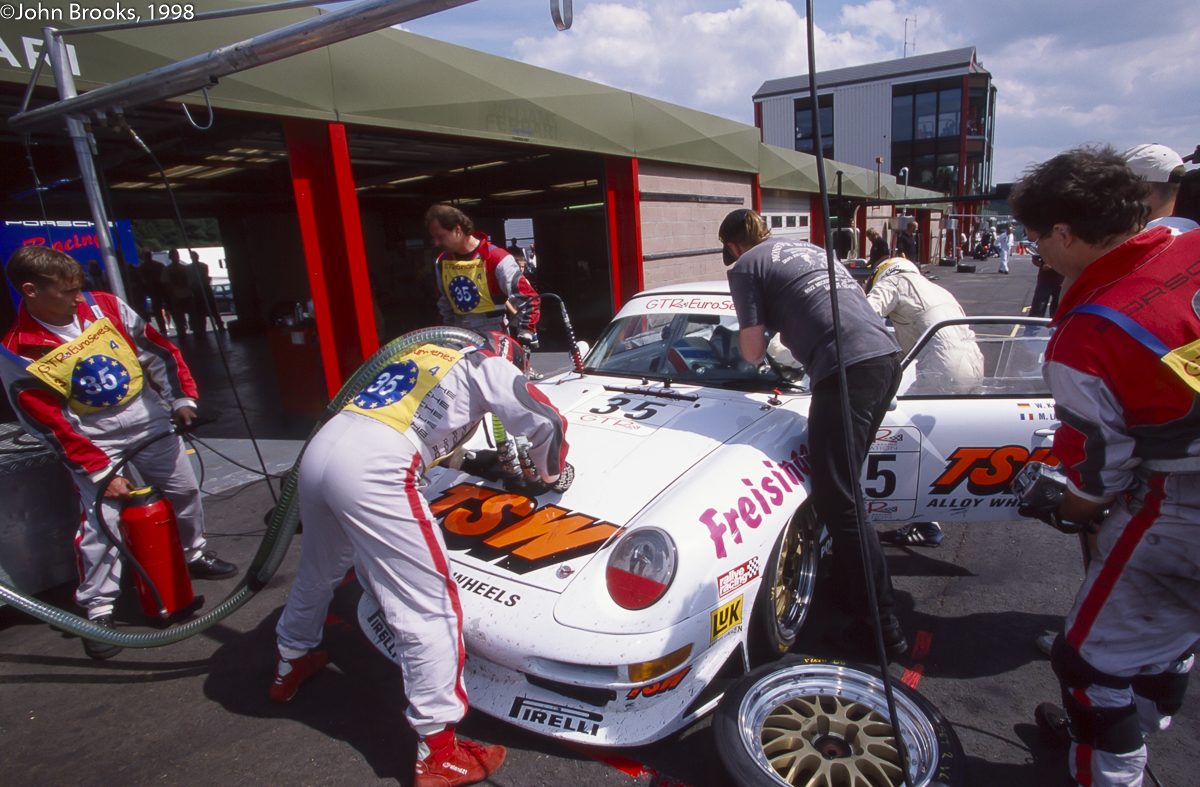
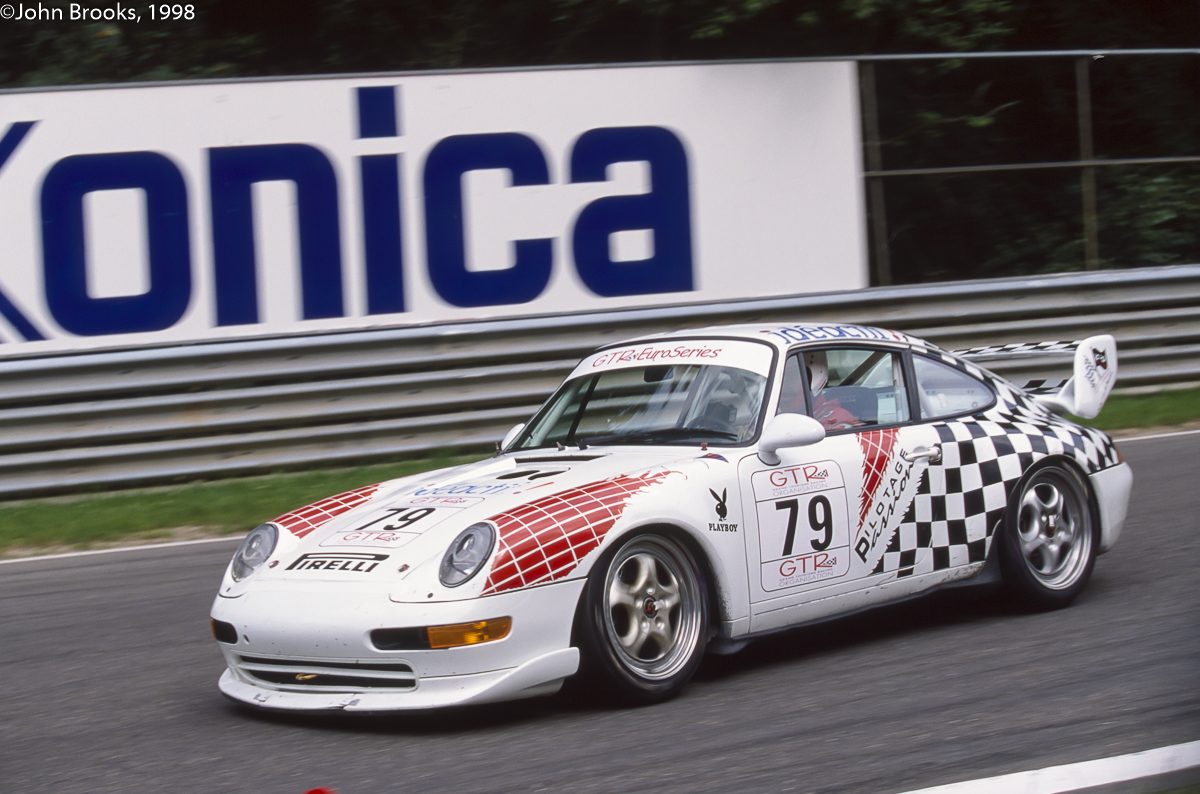
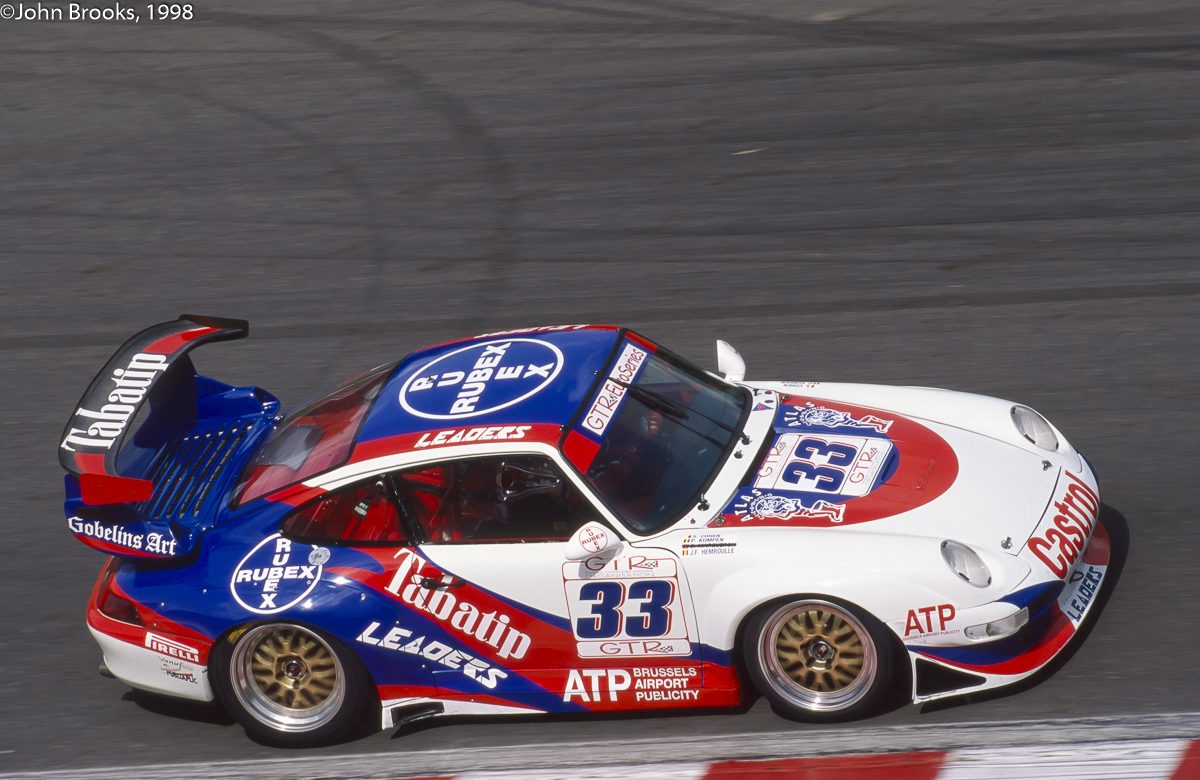
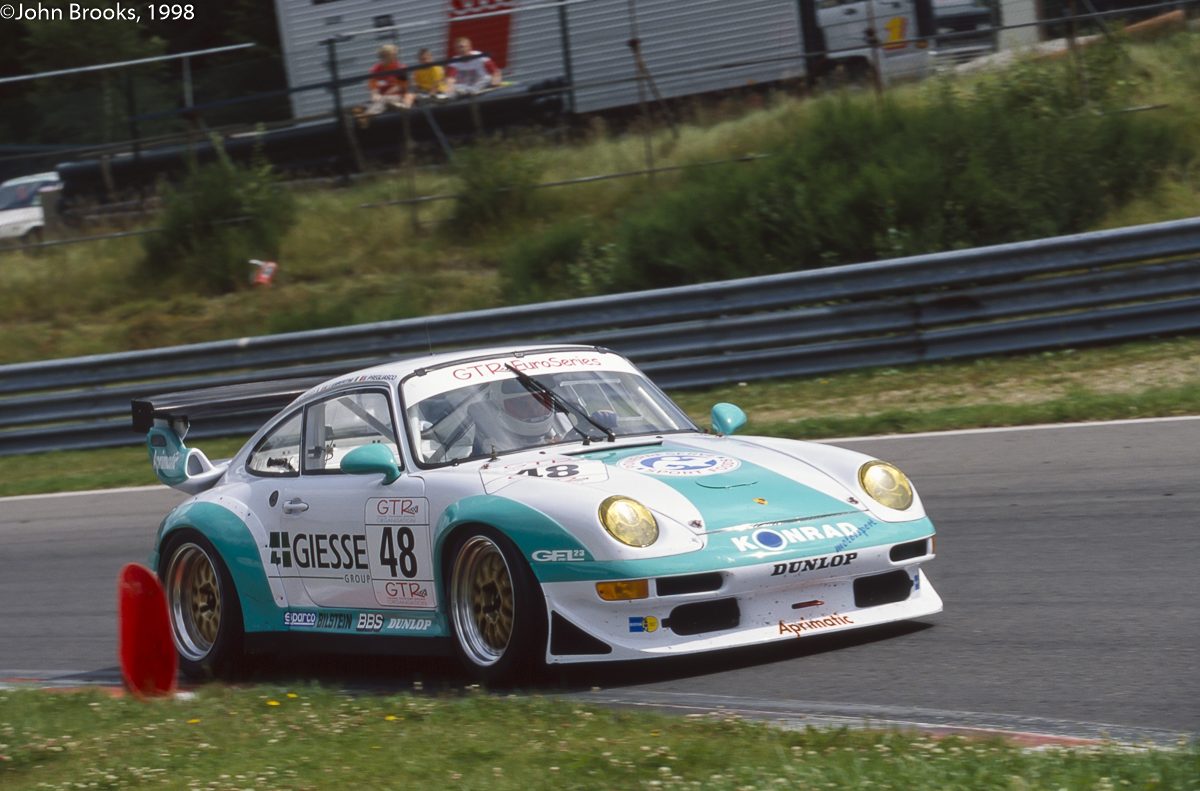
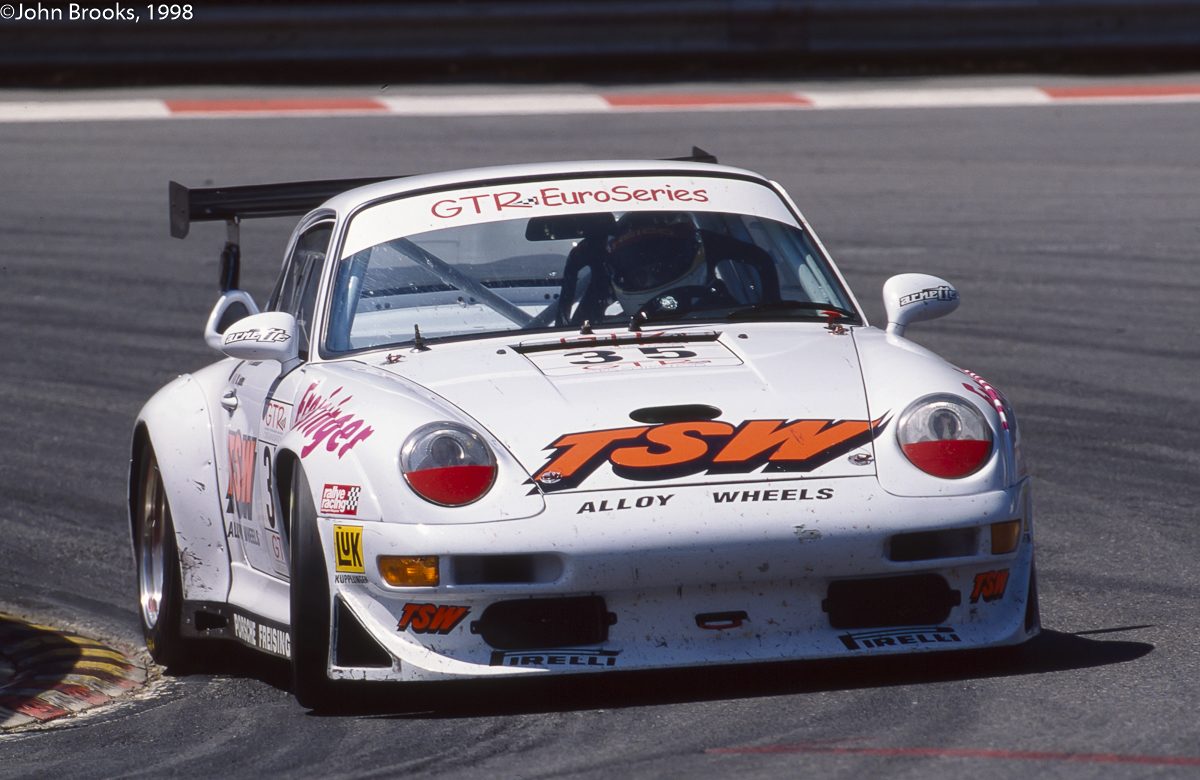
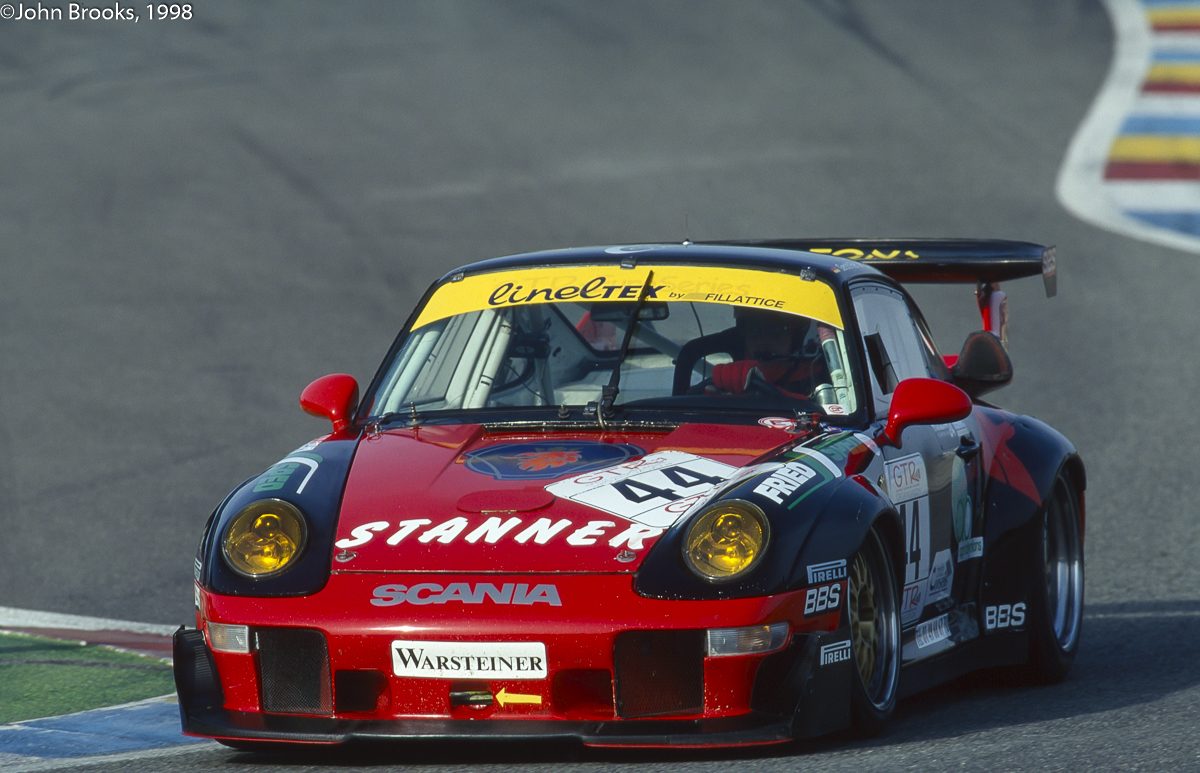
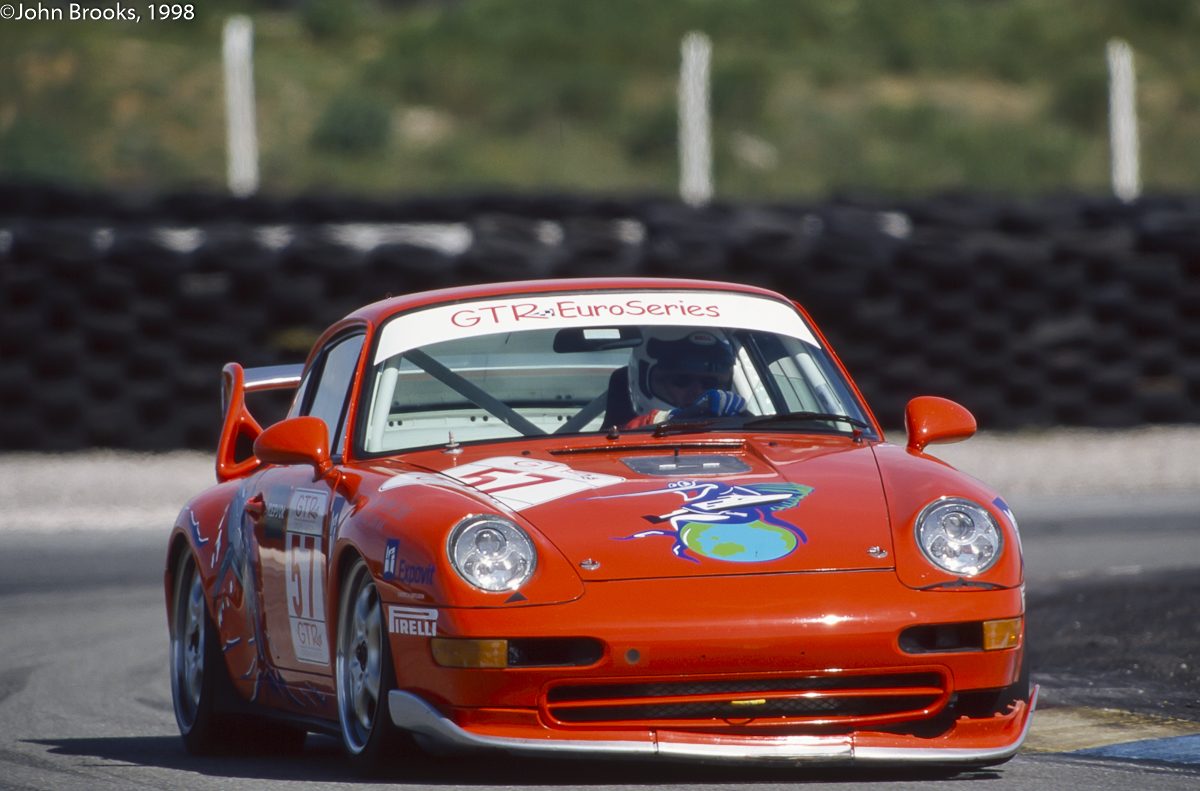
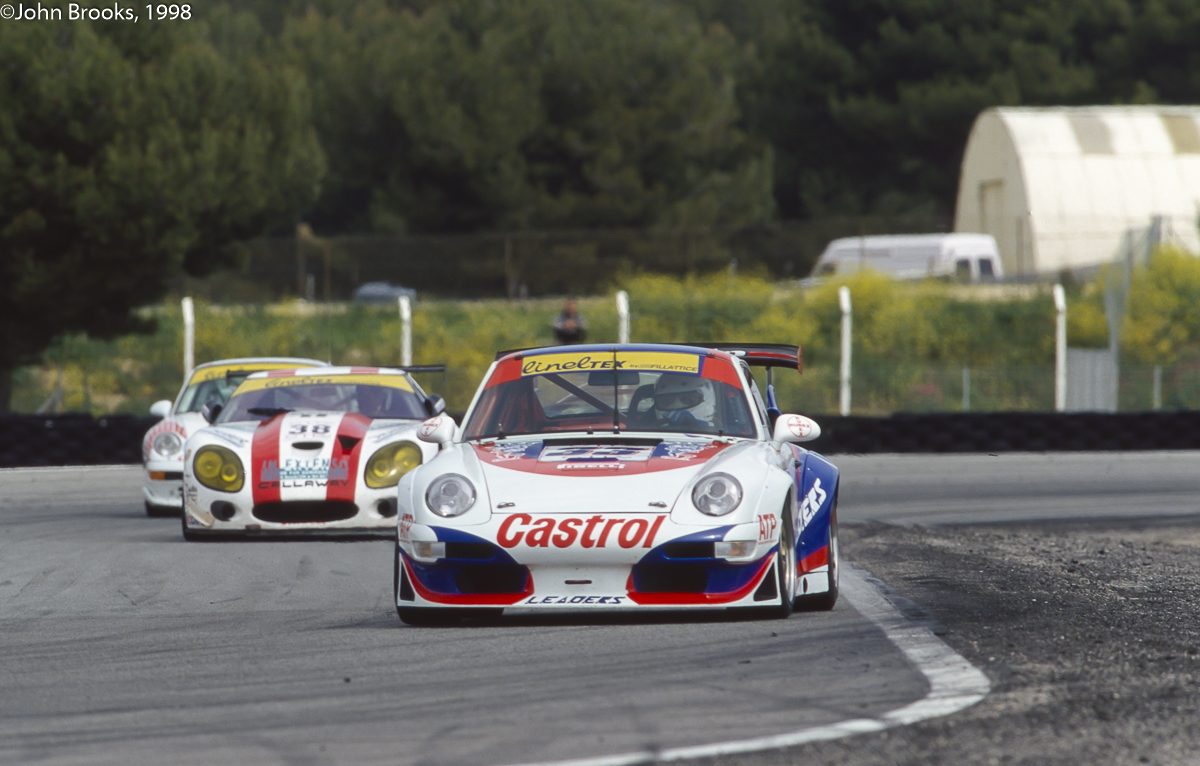
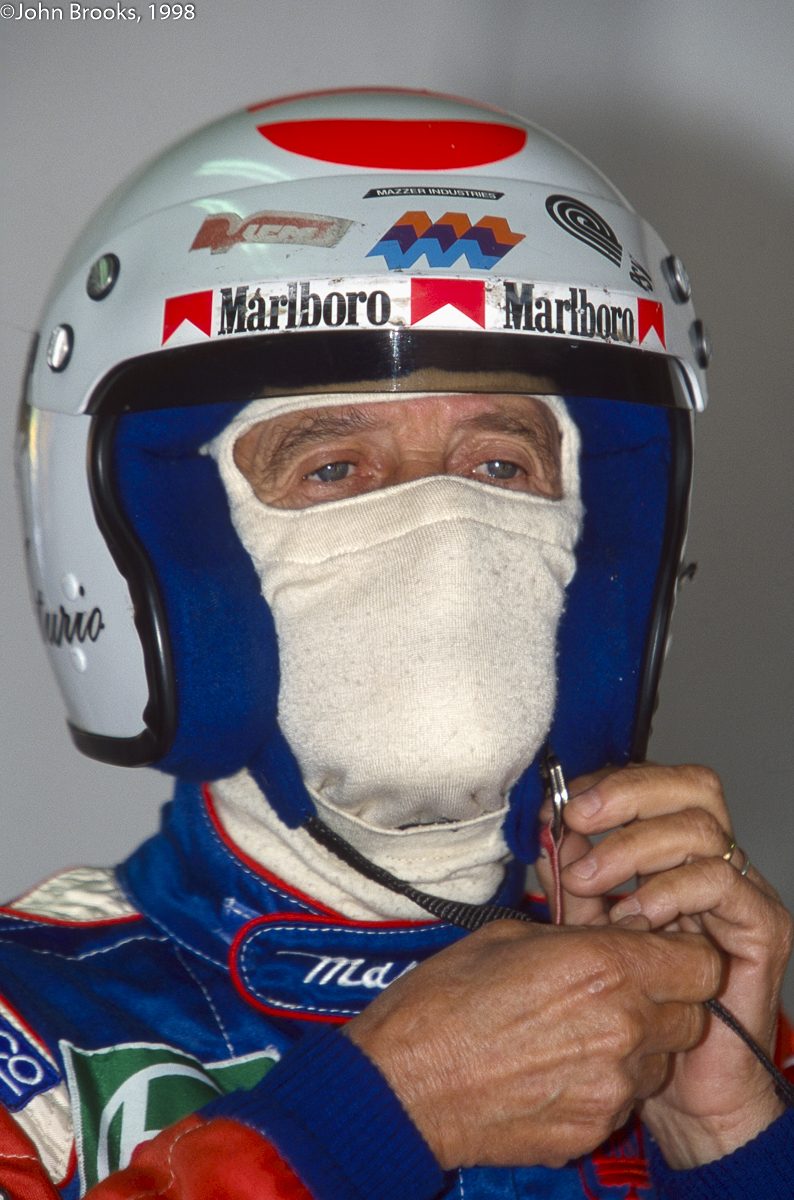
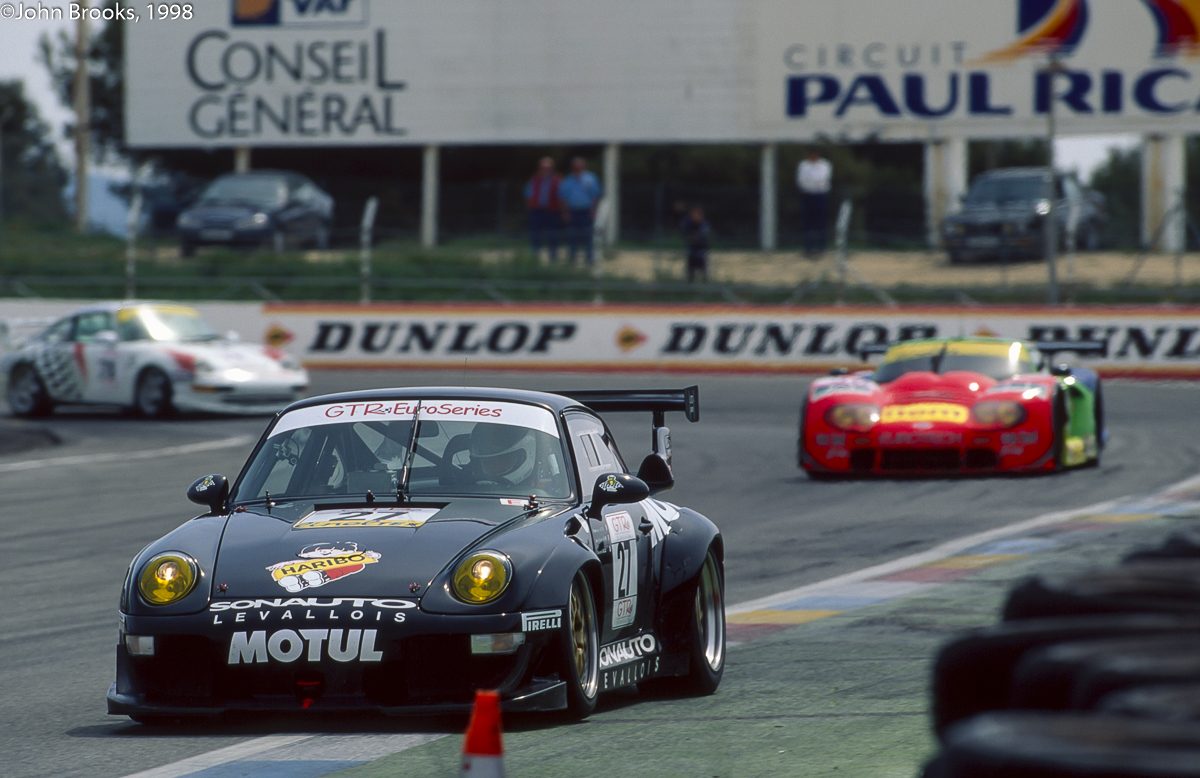
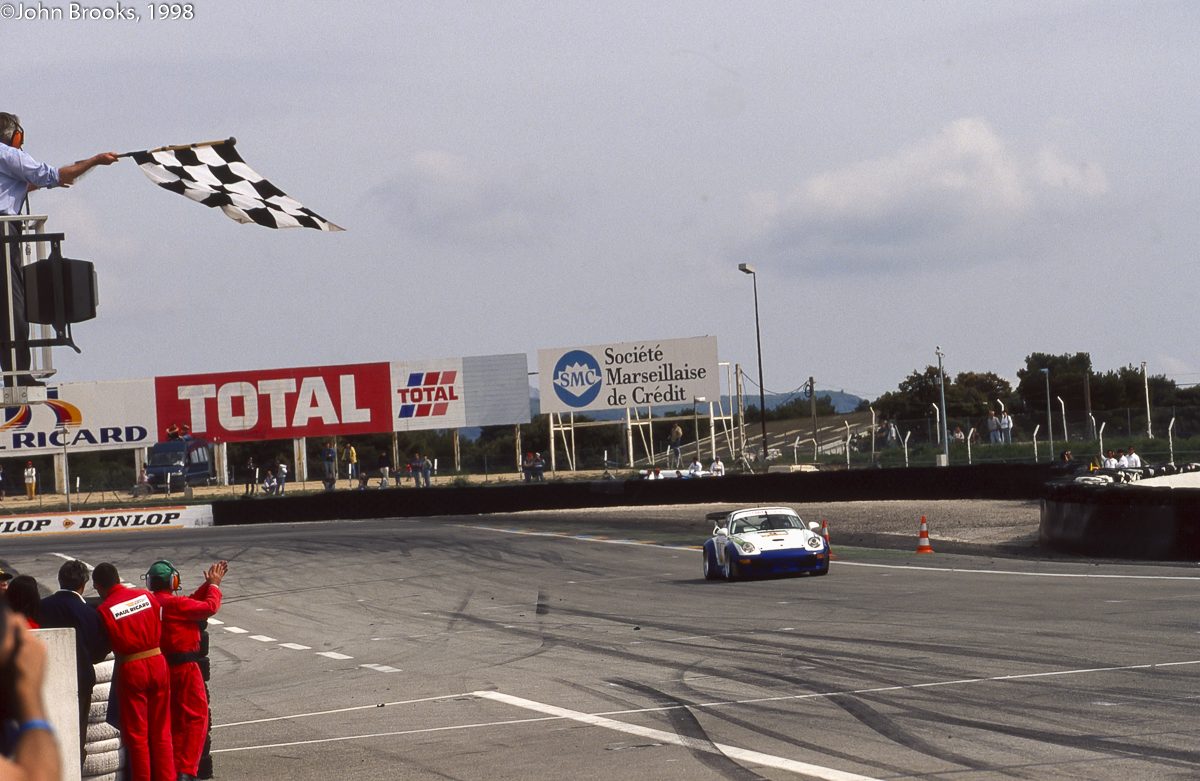
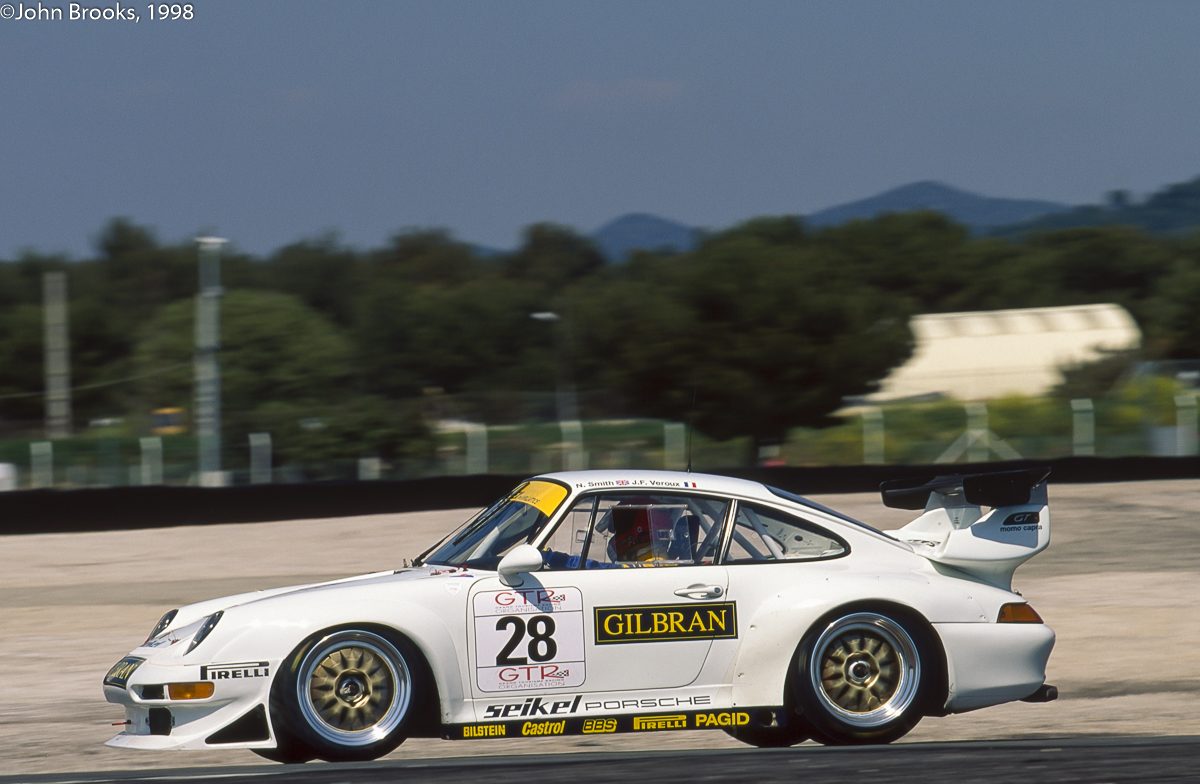
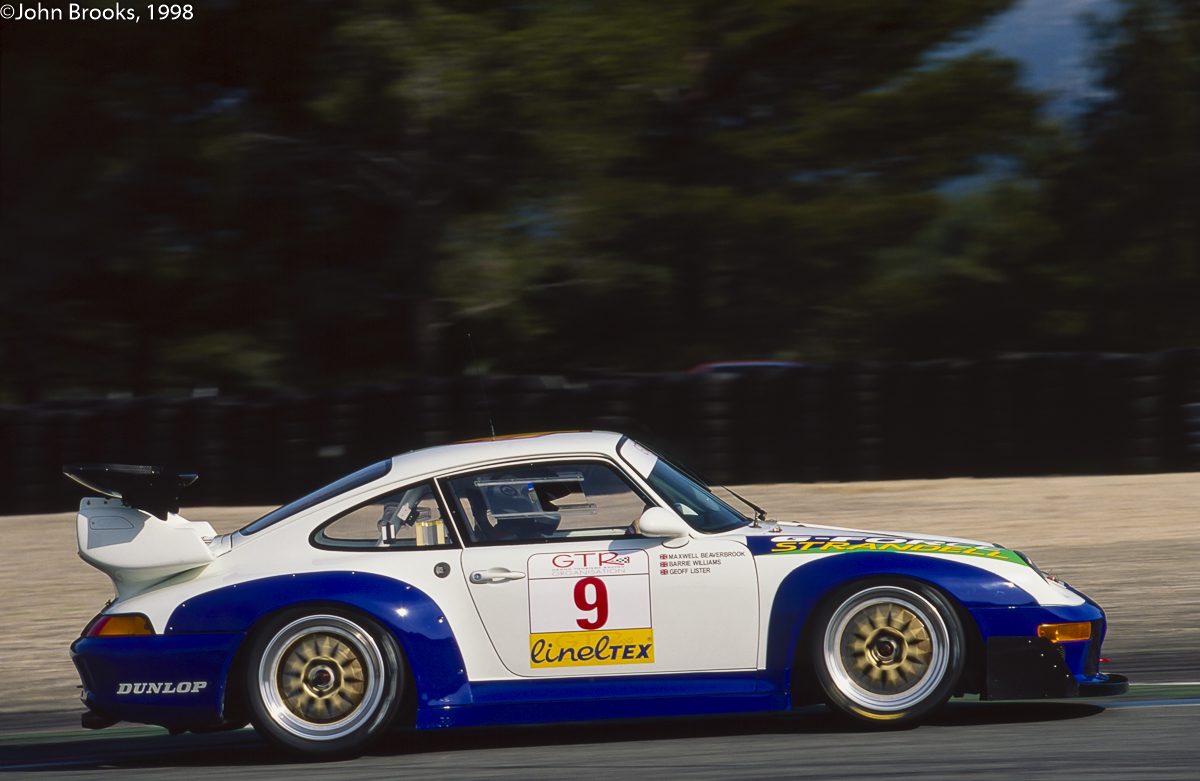
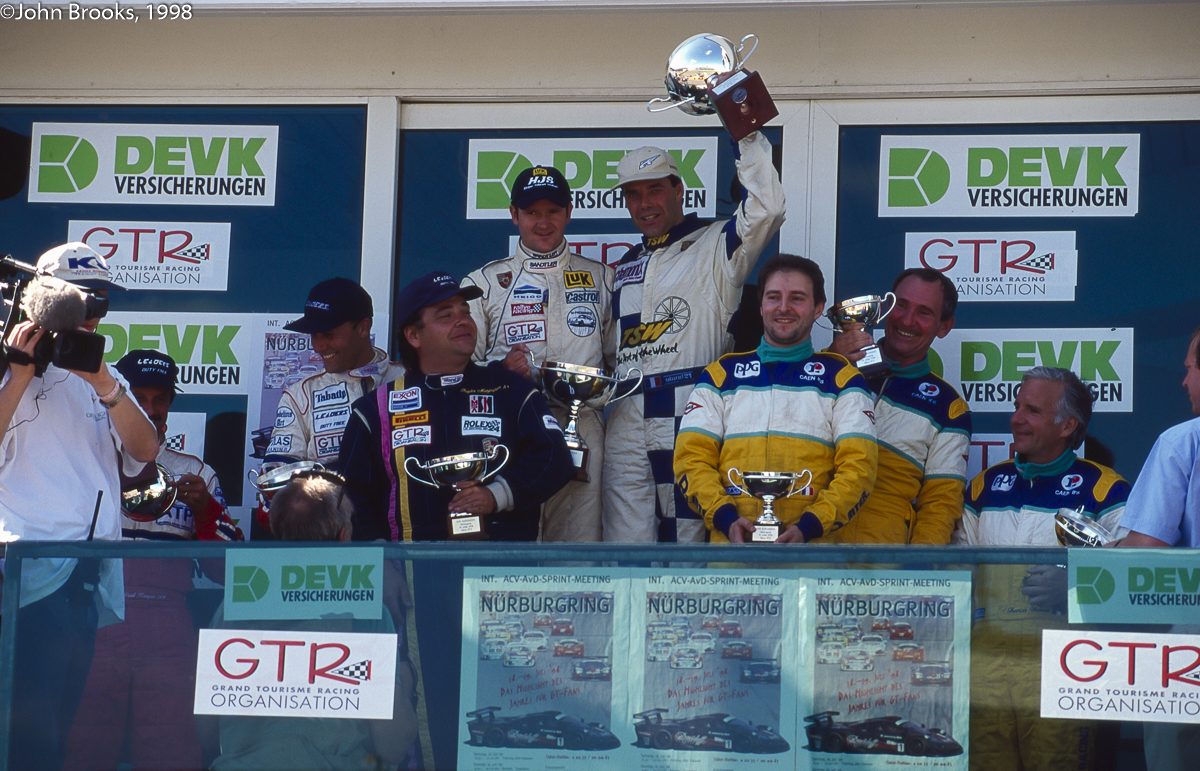
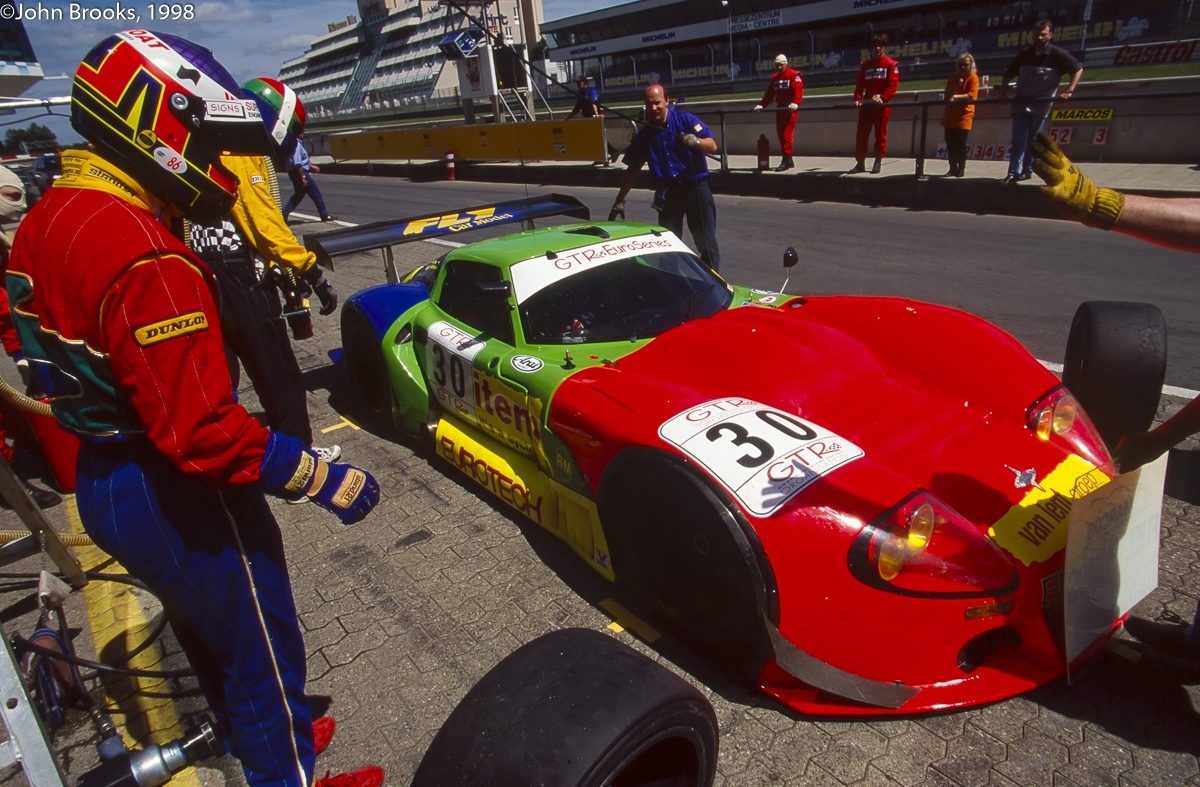
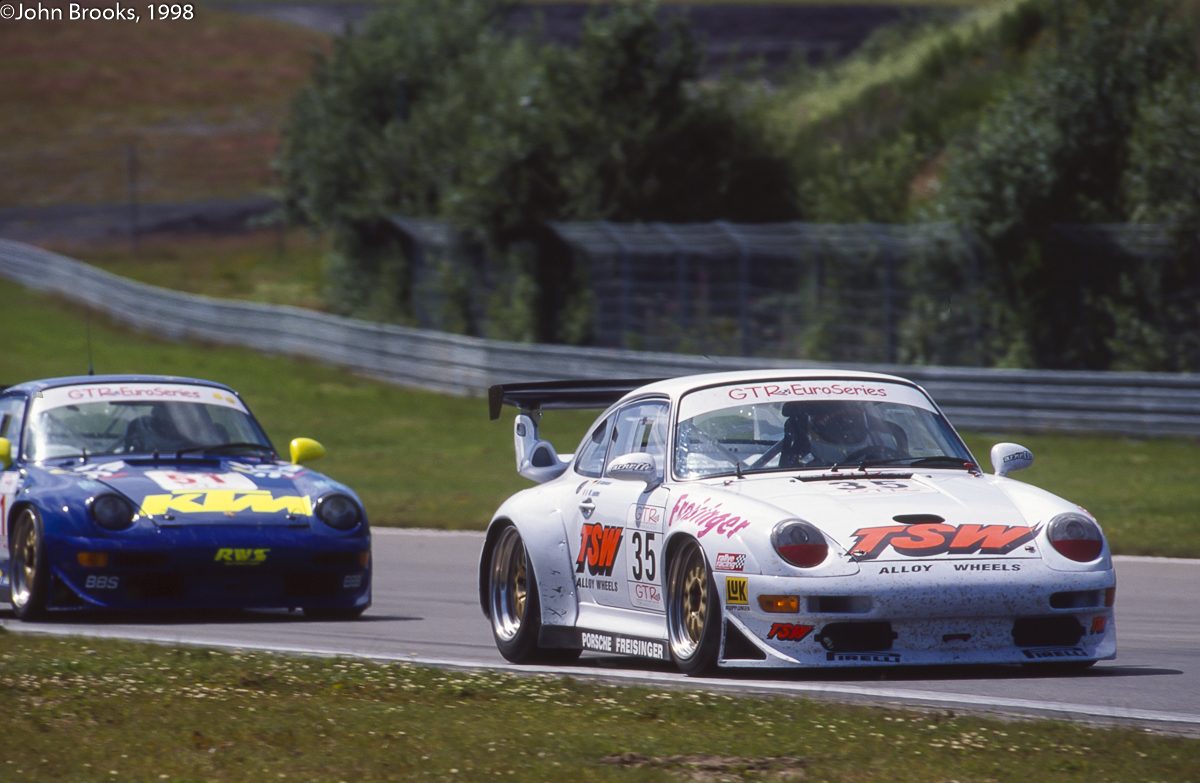
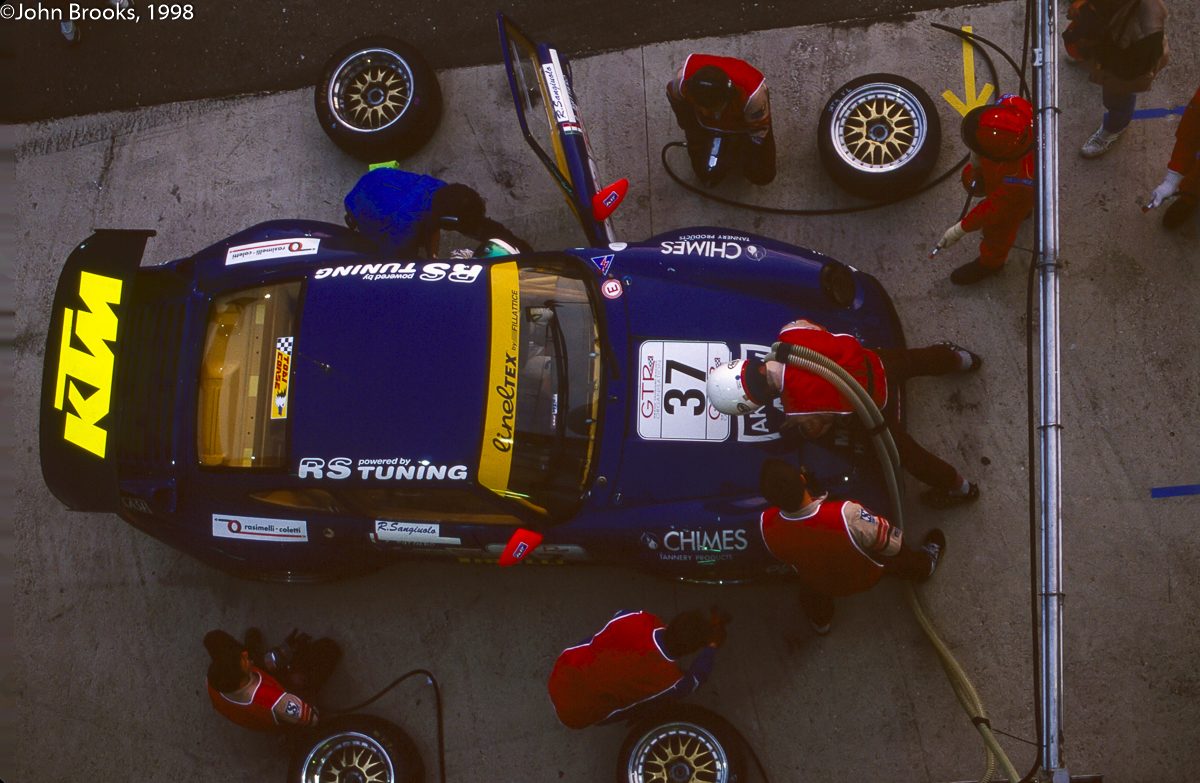
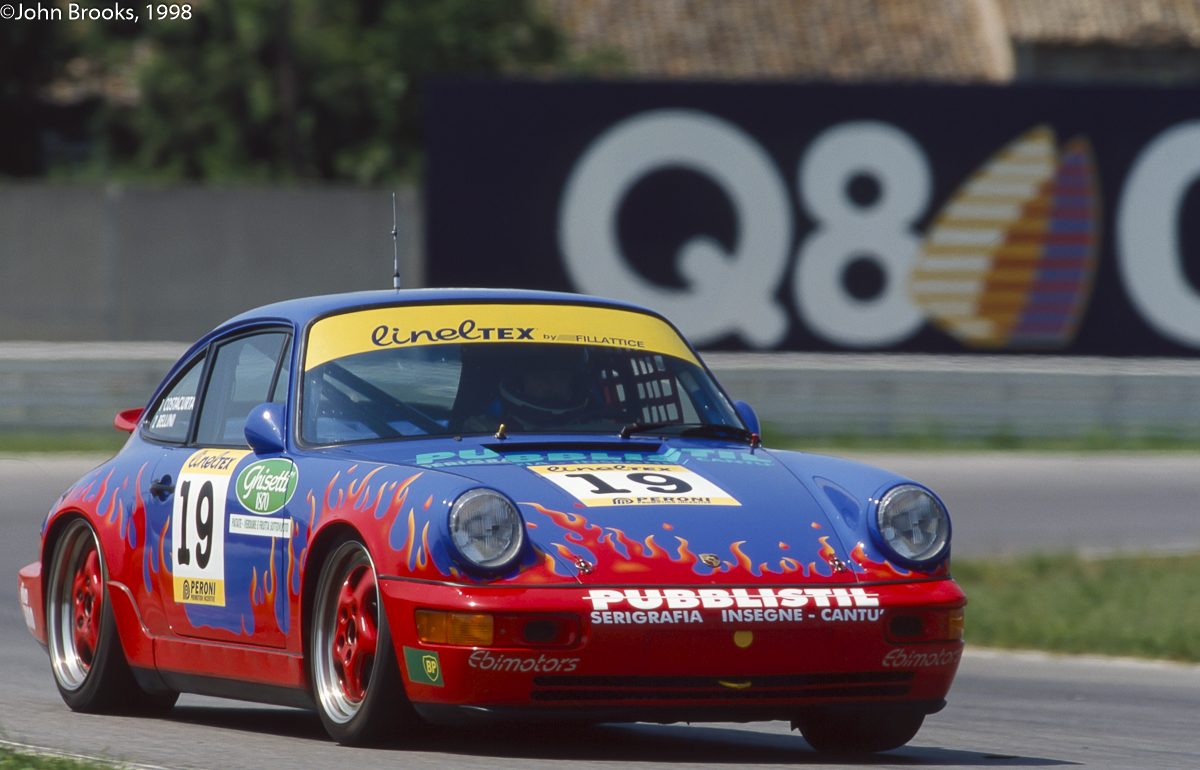
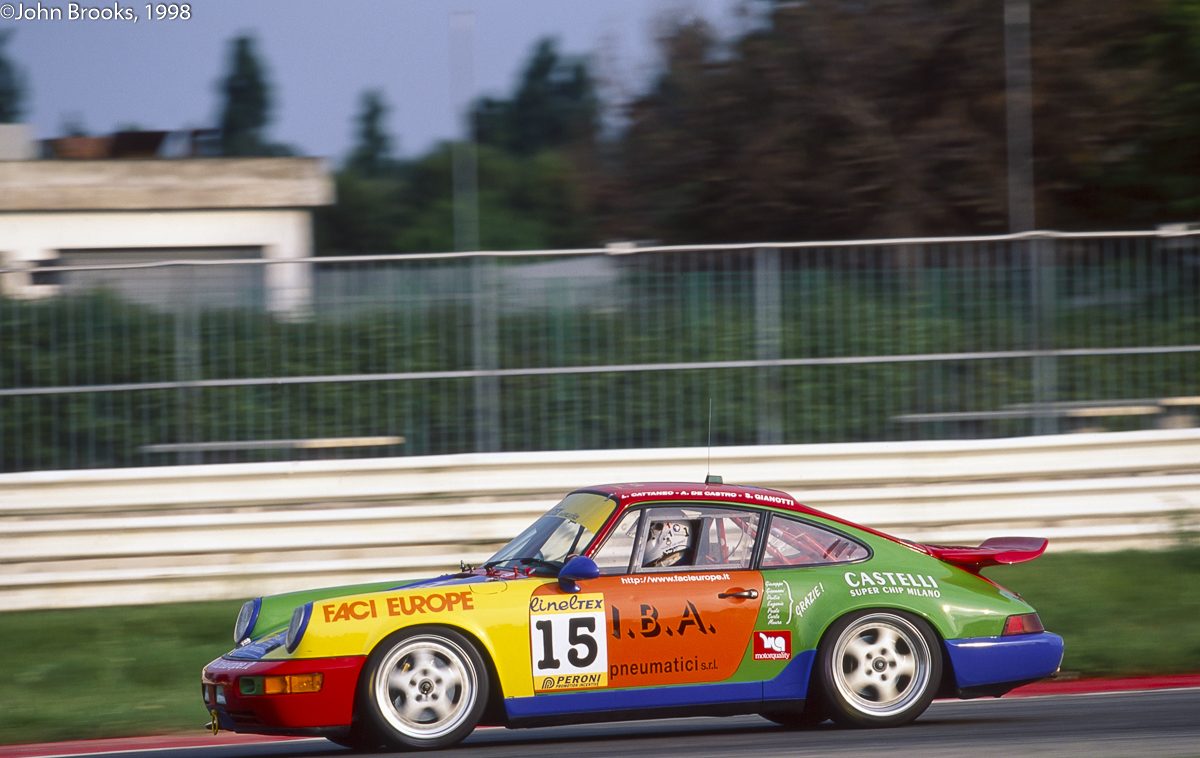
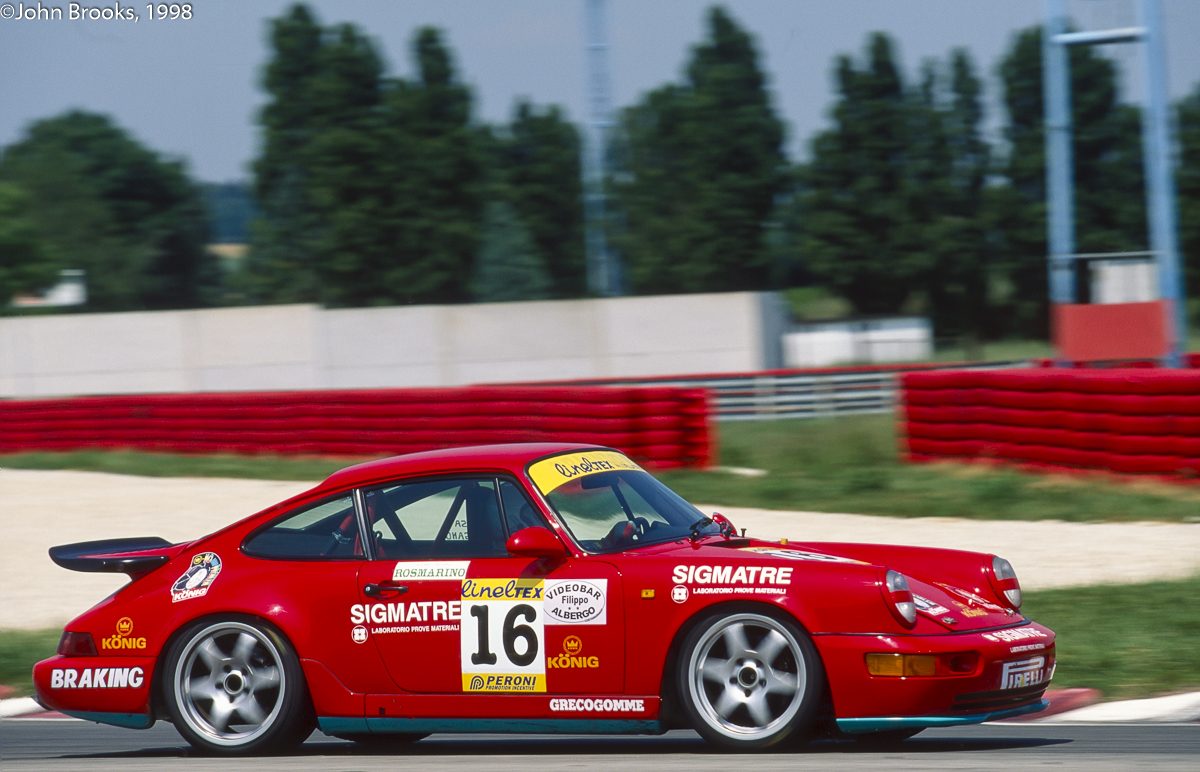
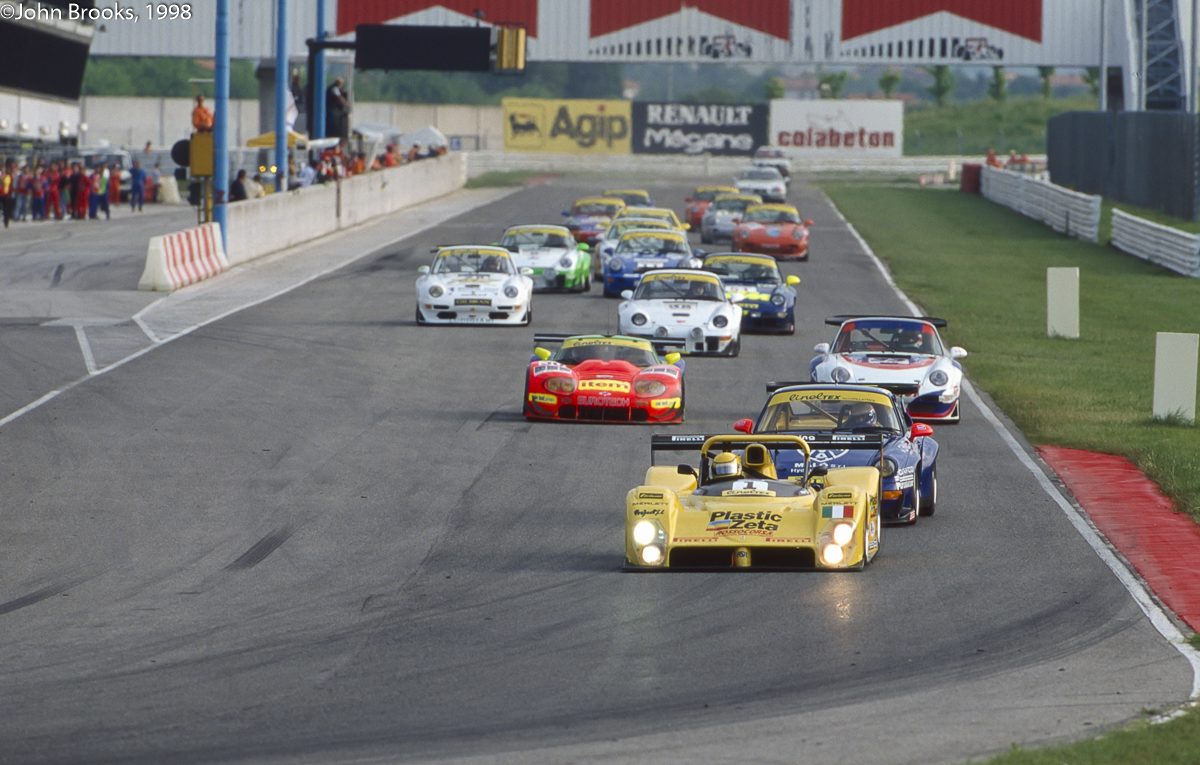
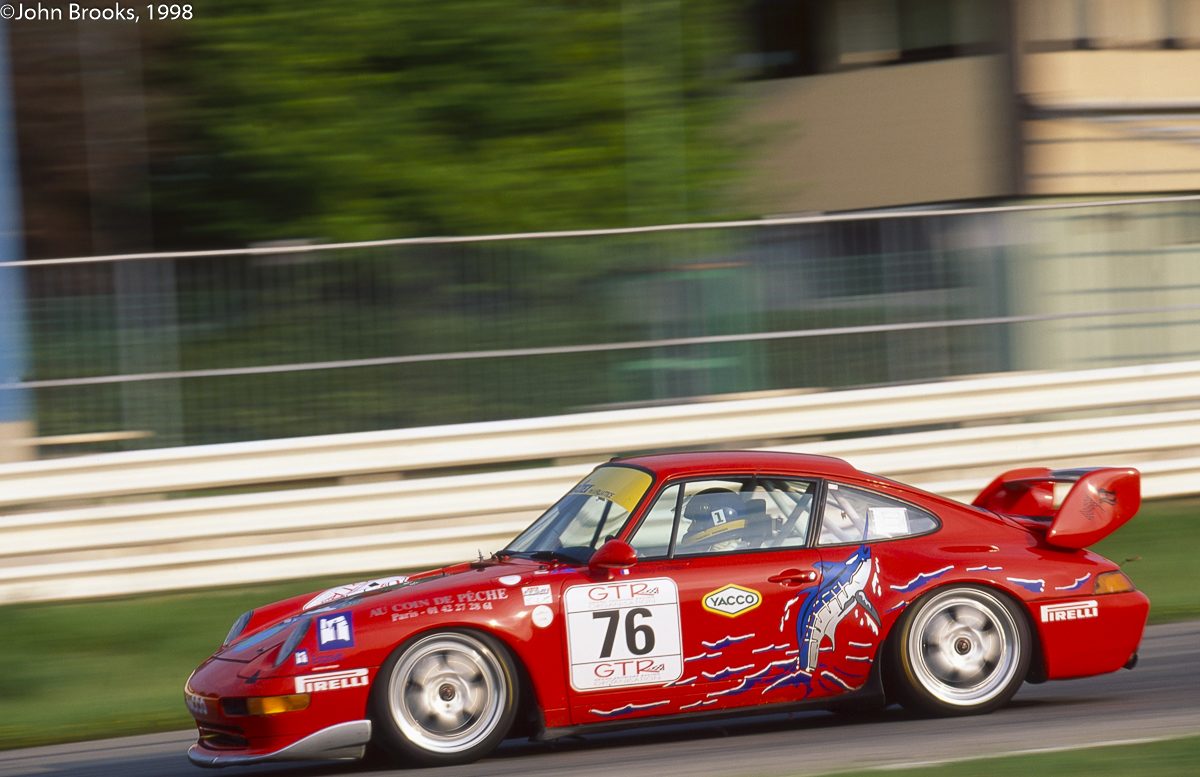
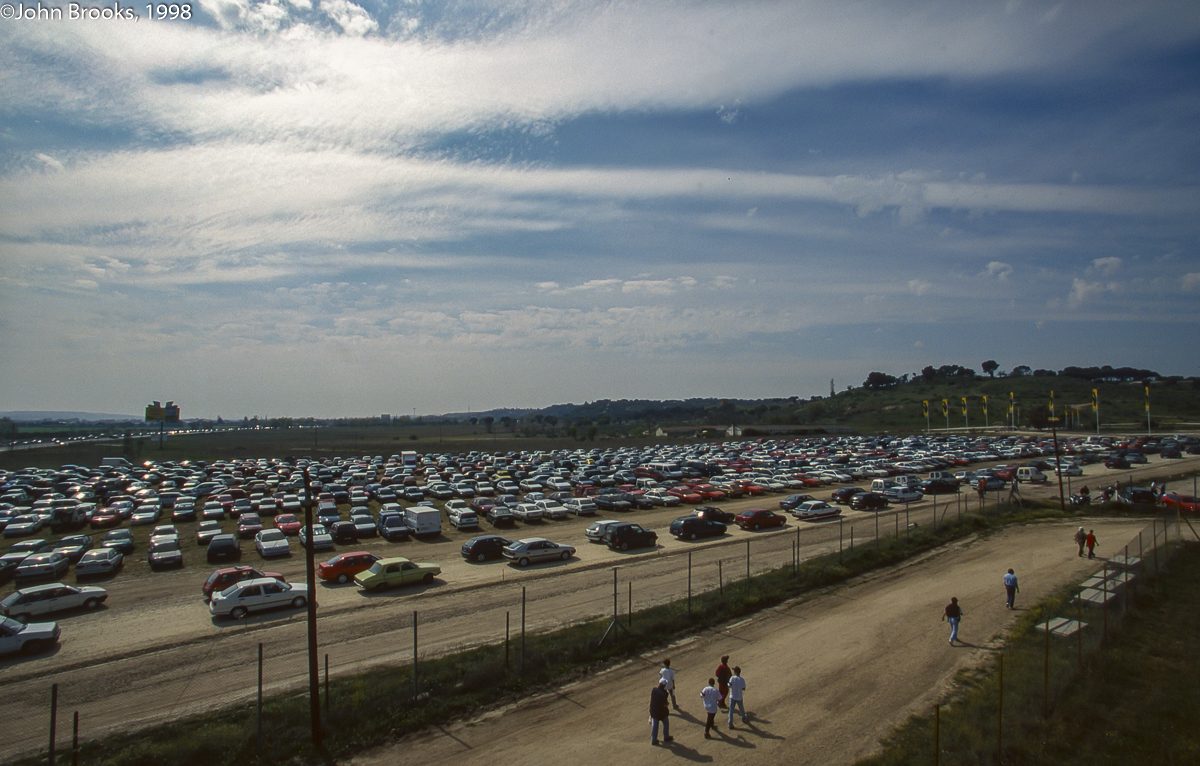
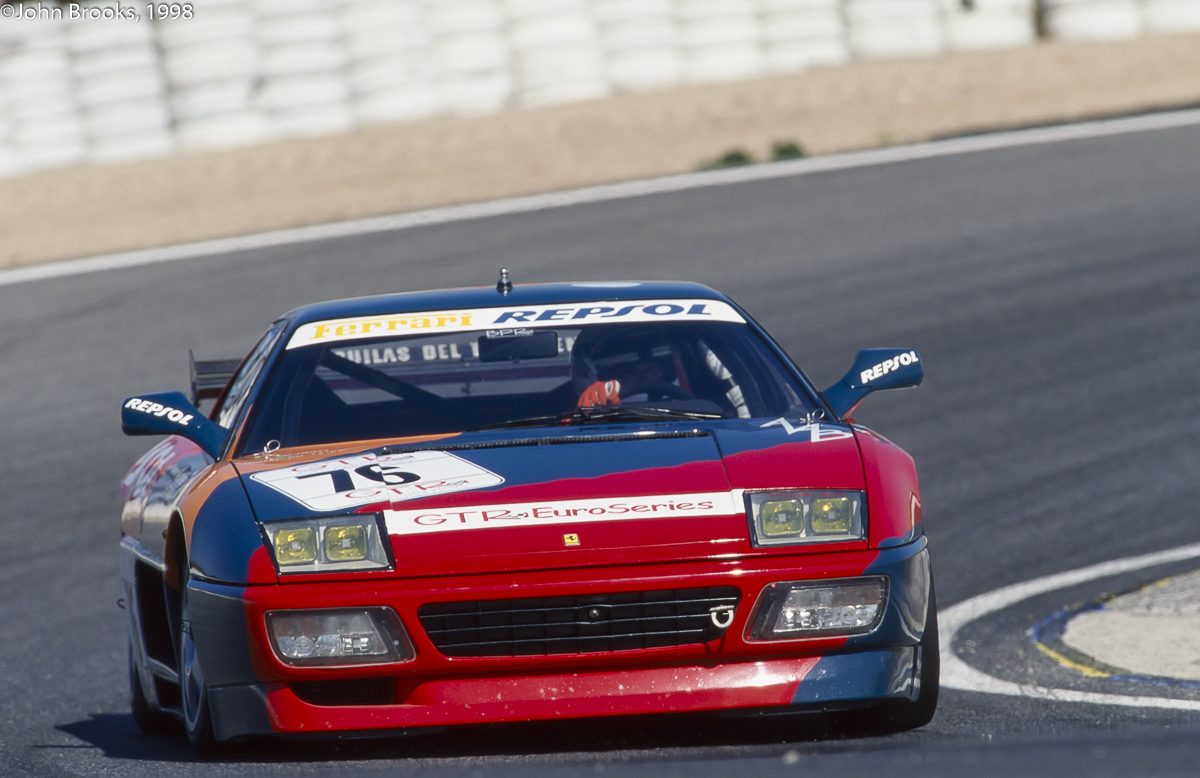
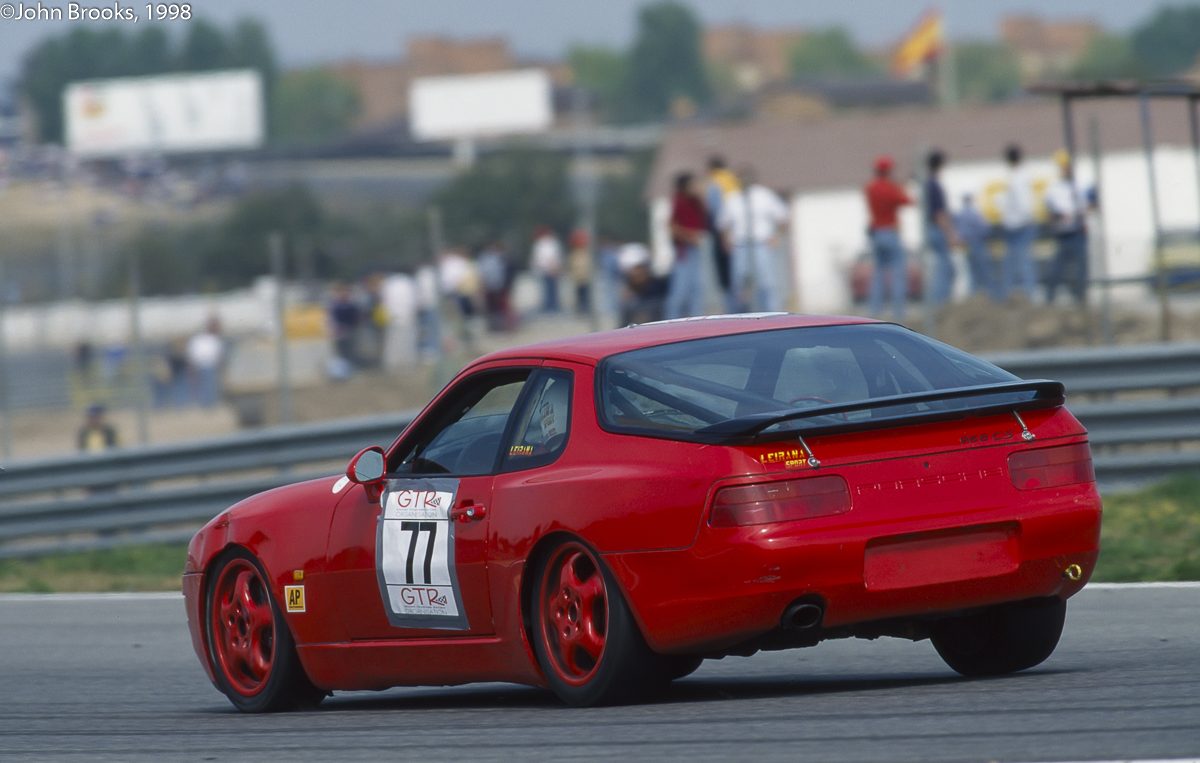
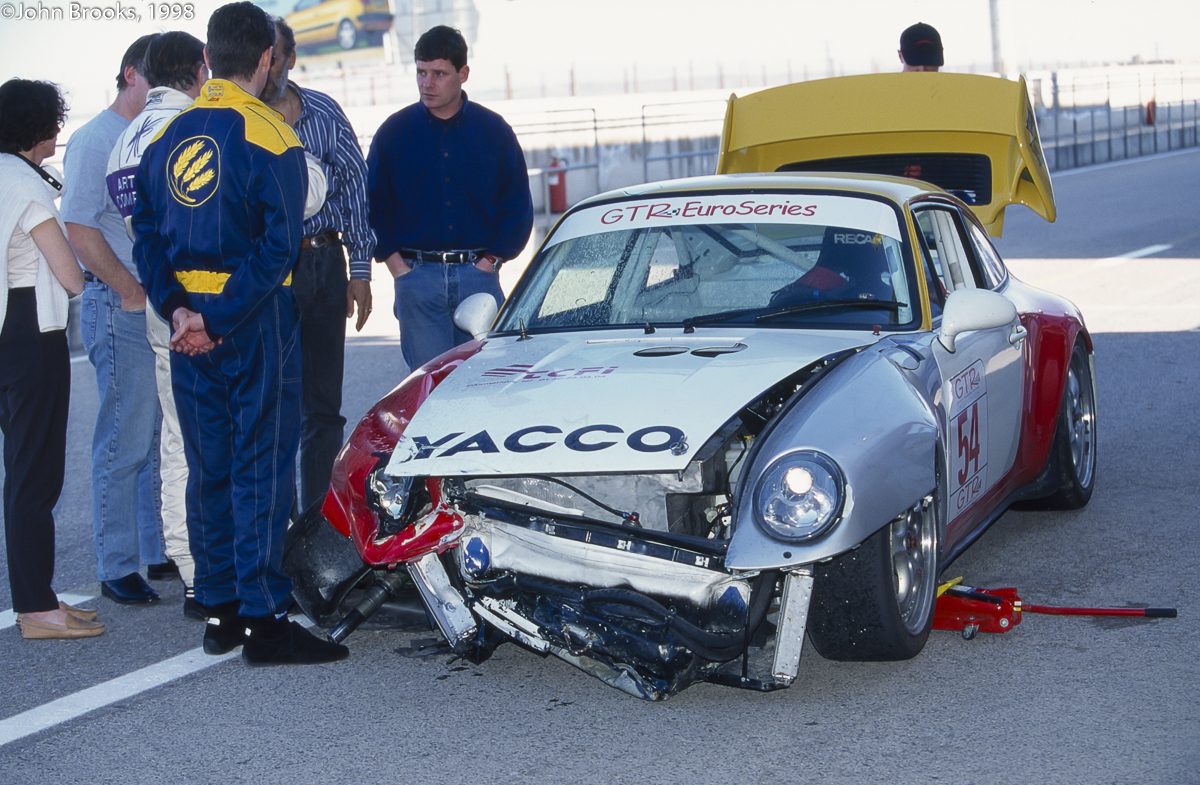
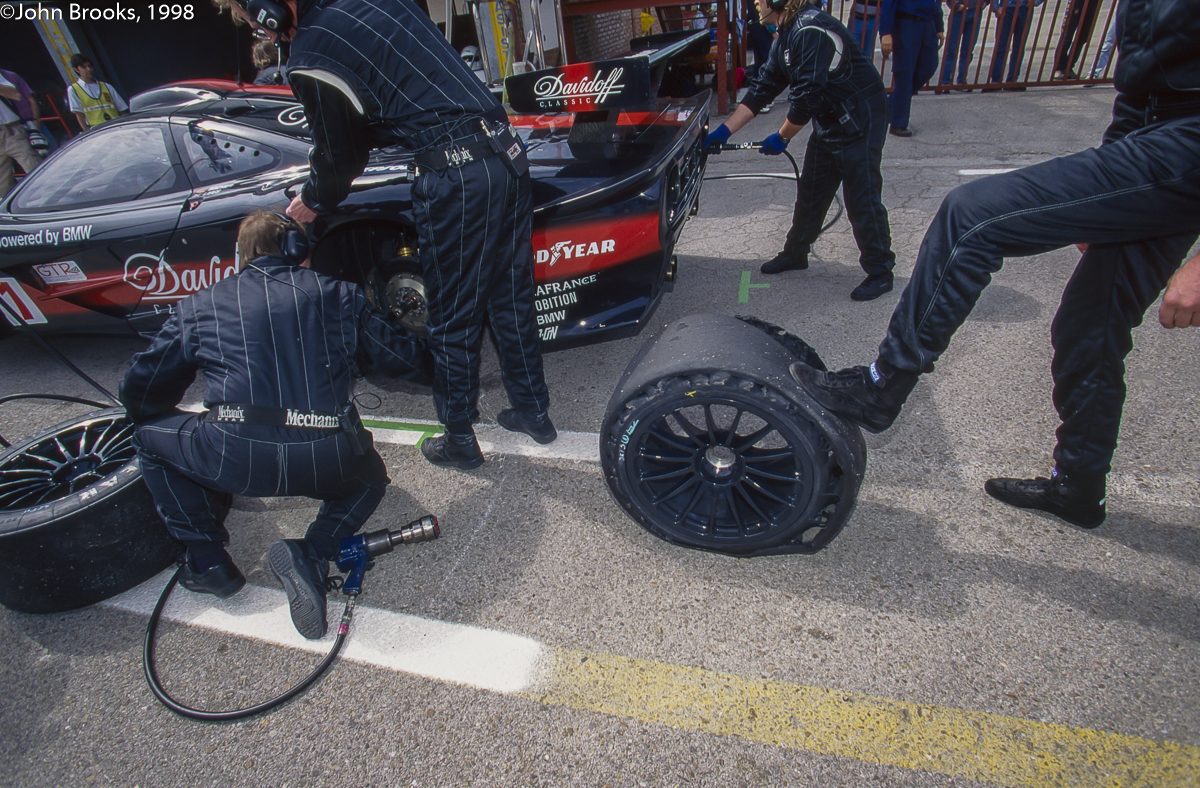
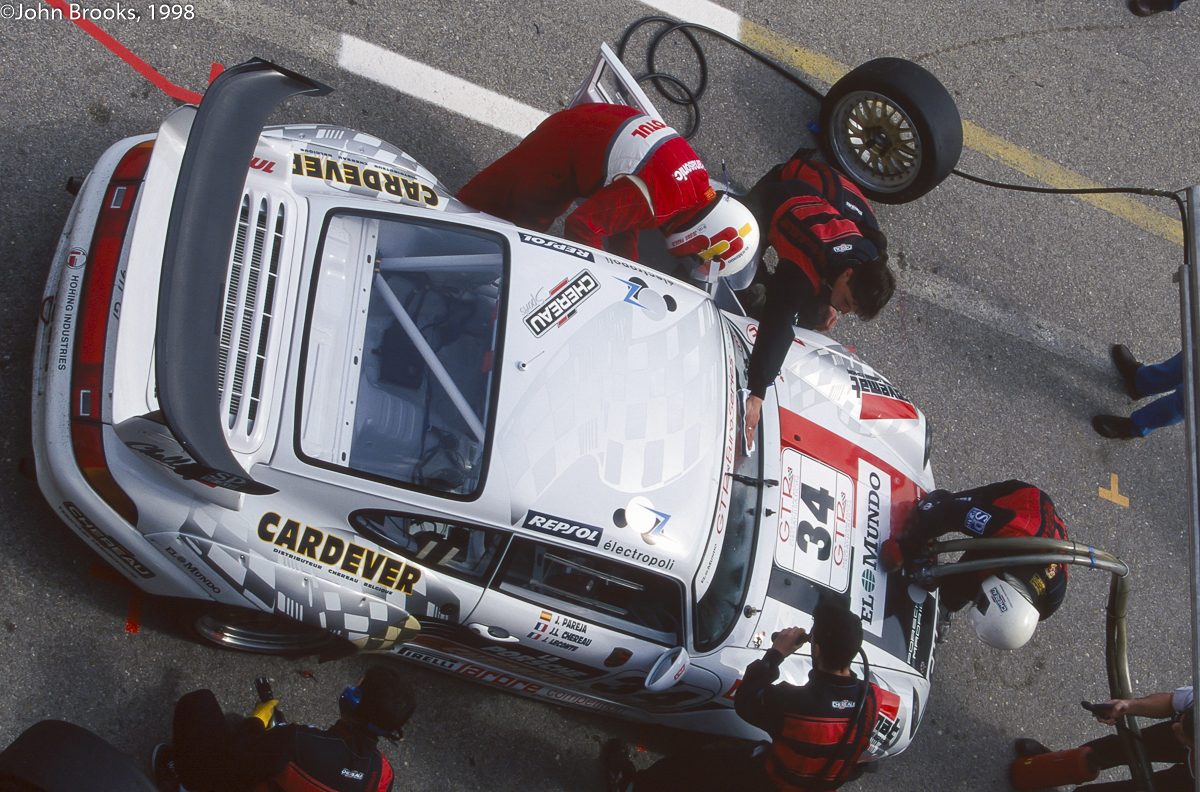
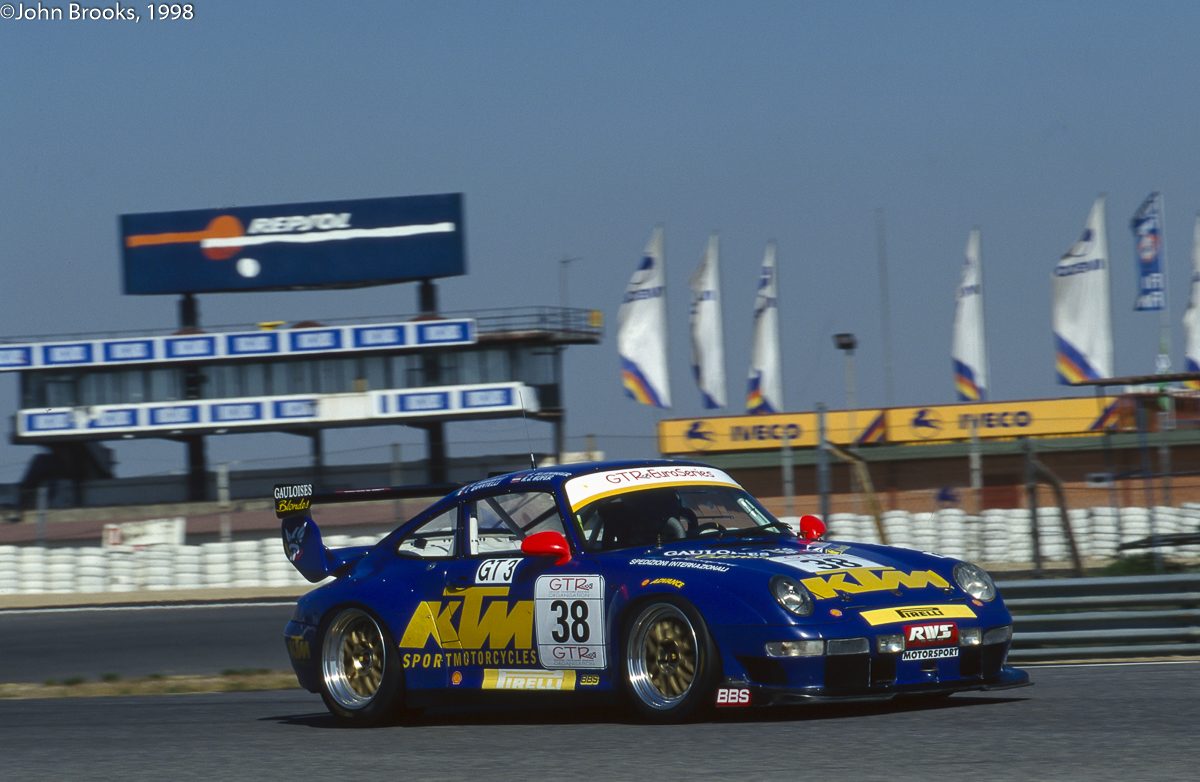
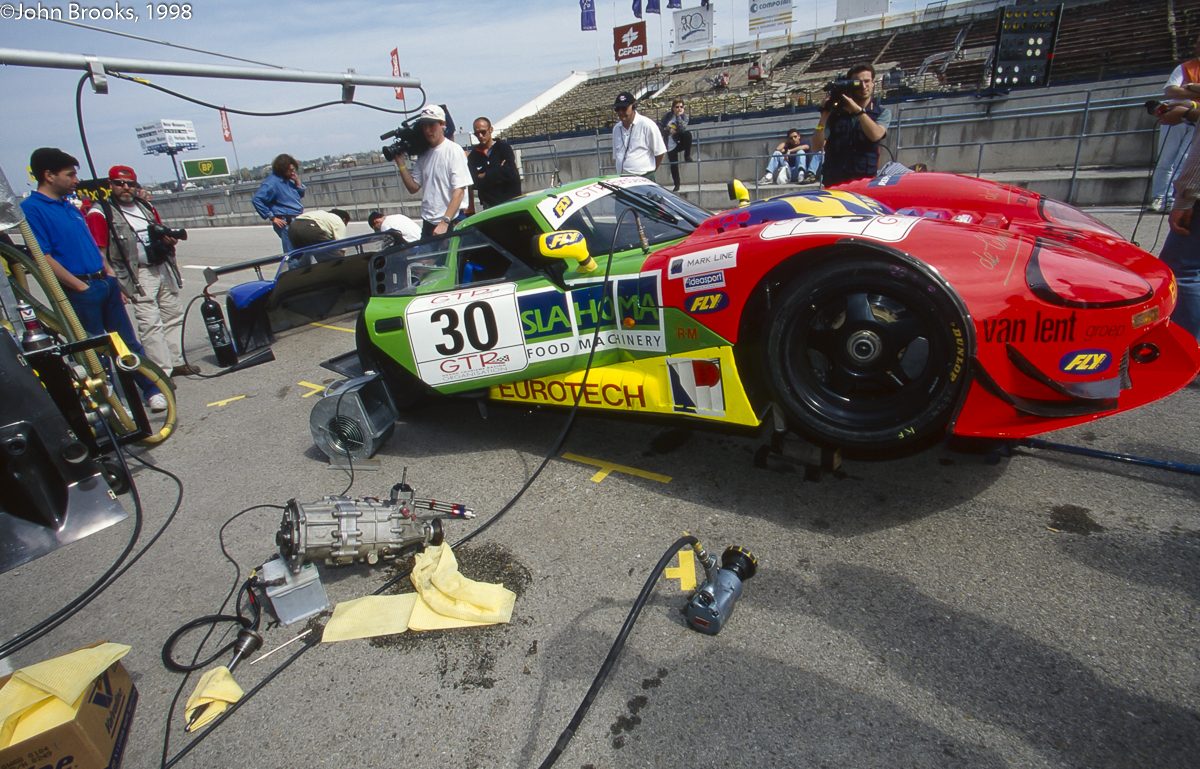
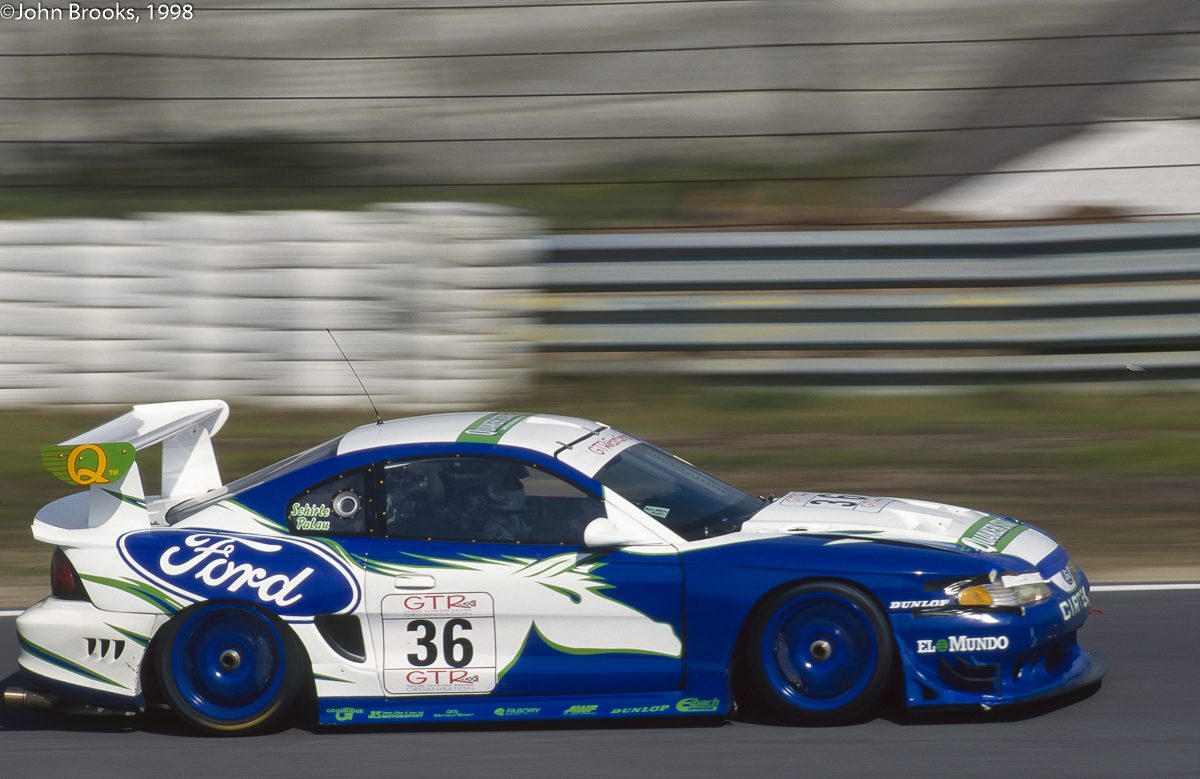
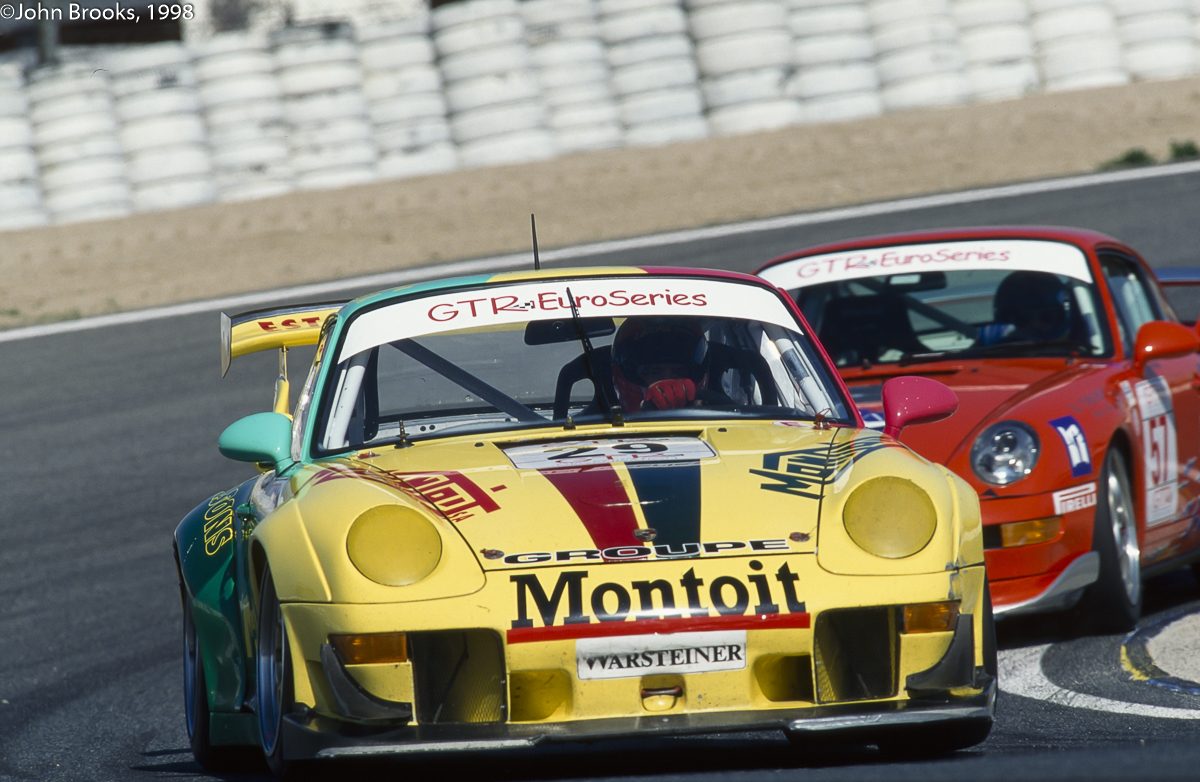
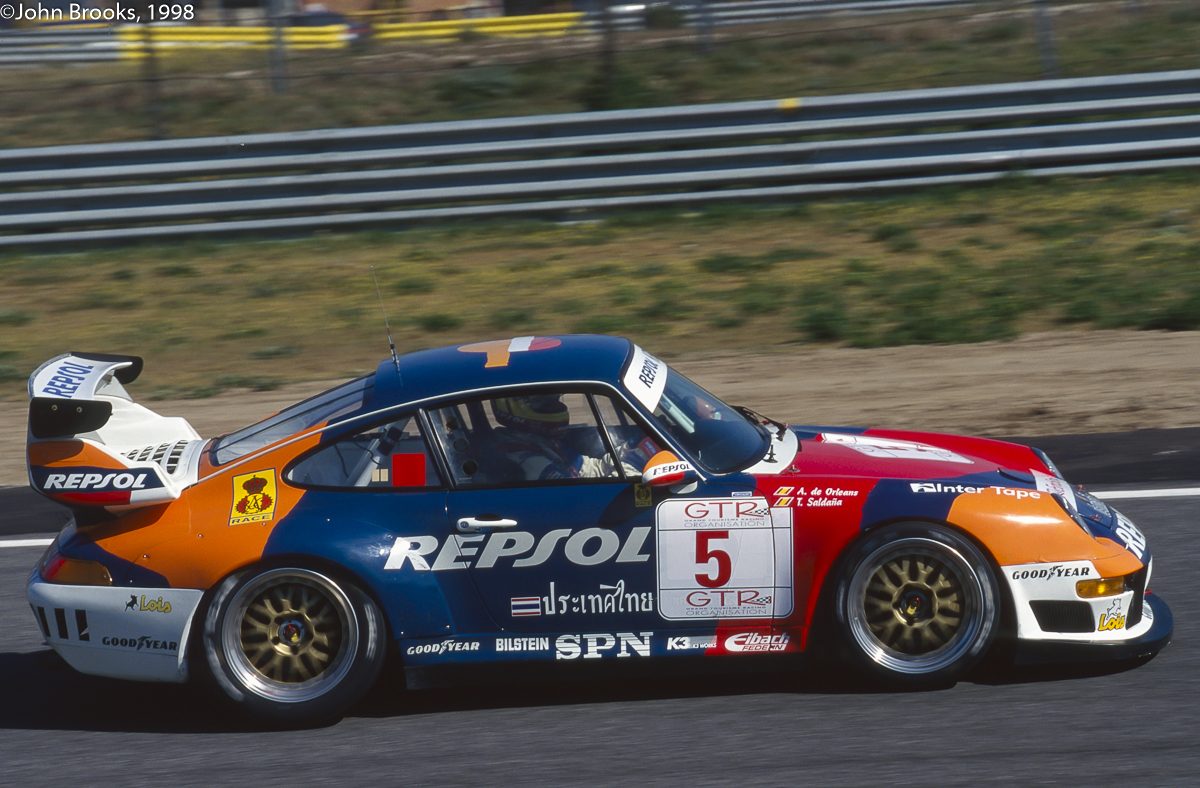
Thank you John for your great article on the brief life of the GTR EuroSiries. I always enjoy this reading material about the 90’s racing programes, when it was a really amazing time to experience some faster-than-usual racing machines. And amazing photos here too! I always adored the black and red DayOff livery F1 GTR Longtail the most! (as in favourite of all the F1 GTR’s) 🙂
Thanks again!
It’s quite a reminder to see the history of a decade rich in curses, the GTR Euro series being no exception to the rule. Nonetheless, the idea of separate GT series – the likes of GT Open, WC (pre-2019), Thai Super Series, etc. coming to mind, was at least tried and developed upon.
Amazing gallery though!
Just can’t help how the VBM 4000 GTC was not only crafted before Matech and Doran, but also pioneered the idea of a TT V6 powered GT, much much prior to Mk2 GT WEC contender. For sure, it must’ve been time traveling, or the fact of Ford Motor Company having displayed the 2K era GT(40) concept at the year ’95. Either way, a worthy treasure piece to the layers of history.